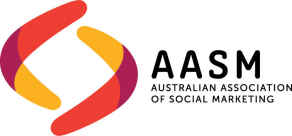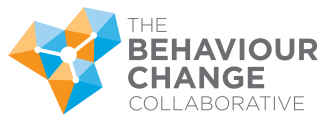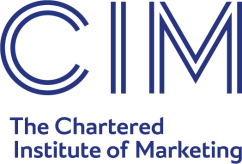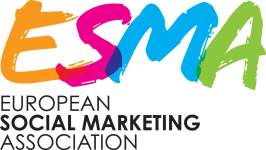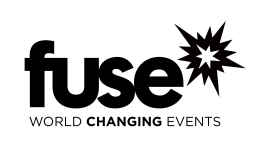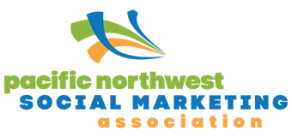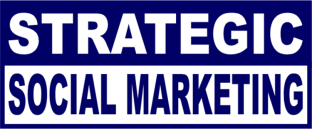
3 June 2019
| 09:00 to 17:00 | WORKSHOP - Adding a “T” (Technology) into the 4 Ps |
Adding a “T” (Technology) into the 4 PsSession Facilitators: Jennifer Wayman & Emily Zeigenfuse Location: Culzean Session content overview: Technology is a powerful tool to help social marketers. In this workshop, attendees will learn how innovative technologies can be incorporated into audience research, program planning, and measurement of social marketing programs. Participants will see how incorporating technology—like websites, apps, virtual reality, gamification, chatbots, and more—into each of the “4P’s” of a social marketing program can strengthen the overall program and make it more effective. Participants will spend time during the workshop applying their learnings by creating a sample social marketing program that includes technology components. Objectives
Content
Full day workshop: GBP 240.00 
Jennifer leads Hager Sharp with a creative and entrepreneurial spirit. As one of the nation’s most sought-after experts in social marketing, she has built a career out of making positive change in the world. She oversees and provides senior counsel as needed across all agency clients, particularly in the areas of: strategic communications planning, message development, communication research and evaluation, issues management, crisis communications, message and media training, stakeholder engagement, and public-private partnerships. Jennifer has more than 25 years of experience leading national social marketing and public health communications initiatives and campaigns for nonprofit organizations, Fortune 100 companies, and federal agencies. She guides strategic planning for national initiatives across a range of sectors and has counseled such clients as the U.S. Department of Health and Human Services, Centers for Disease Control and Prevention, Centers for Medicare and Medicaid Services, Federal Emergency Management Agency, Food and Drug Administration, National Institutes of Health, U.S. Department of Agriculture, AmeriCares, First Lady Michelle Obama’s Let’s Move! Campaign, as well as Merck, Pfizer, GlaxoSmithKline, and the American Hospital Association. 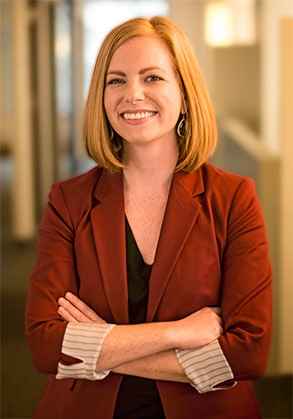
Emily Zeigenfuse has 10+ years of experience in social media, digital strategy, and online communications. As Hager Sharp’s Vice President, Director of Digital Strategy, Emily plans, creates, and executes research-based digital strategies that enable clients to reach business objectives. In her role, Emily conducts digital research that informs campaign planning, such as audience personas, website assessments, and social media listening; leads social media content planning; plans, conducts, and reports on paid media campaigns; and measures client performance on digital channels to offer actionable recommendations to improve. She excels at synthesizing complex data to draw out insights that guide the planning of effective digital strategies. | |
| 09:00 to 17:00 | WORKSHOP - Fostering Sustainable and Healthy Behaviour through Community-Based Social Marketing |
Fostering Sustainable and Healthy Behaviour through Community-Based Social MarketingSession Facilitator: Dr Doug McKenzie-Mohr Location: Melville Session content overview: This one-day workshop with Dr Doug McKenzie-Mohr, internationally renowned social marketer and founder of community-based social marketing, provides a comprehensive introduction to community-based social marketing and how it is being applied throughout the world to foster sustainable and healthy behaviour. Those who attend the workshop will learn the five steps of community-based social marketing (selecting behaviours, identifying barriers, developing strategies, conducting pilots, and broad scale implementation) and be exposed to numerous case studies illustrating its use. As such, this workshop provides an in-depth exposure to community-based social marketing and provides participants with the knowledge they need to develop their own programmes. Full day workshop: GBP 240.00 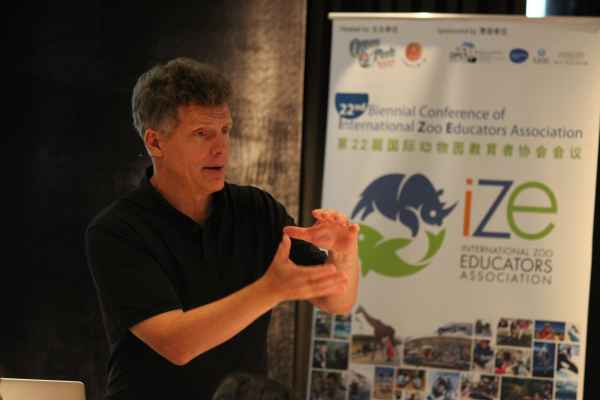
Dr. Doug McKenzie-Mohr For over three decades Dr. McKenzie-Mohr has been working to incorporate scientific knowledge on behaviour change into the design and delivery of community programs. He is the founder of community-based social marketing and the author of three books on the topic. One of these books, “Fostering Sustainable Behavior: An Introduction to Community-Based Social Marketing,” has been recommended by Time Magazine and become requisite reading for those who deliver programs to promote sustainable and healthy behaviour. He has delivered workshops internationally for over 70,000 program managers. Here are some recent, anonymous evaluations: "Fantastic. Simply invaluable” “A fabulous workshop” “By far, the best workshop I’ve attended — on any topic!!!” “Masterful” “Enormously beneficial” “Highest quality training I have ever had the fortune to be part of” “A life-changing event” “Completely transformed my approach to my work”. | |
| 10:00 to 17:00 |
WORKSHOP - Planning and Evaluation: Social Marketing Projects and Programmes Speakers: Professor Jeff French |
Planning and evaluation: Social Marketing projects and programmesLocation: Stirling Session content overview: Aims The aim of this interactive workshop session will be to explore in detail the key elements necessary when planning and evaluating Social Marketing projects and programmes. The workshop will be based on the European Centre for Disease Control technical guidance model for Social Marketing using the STELa planning framework (Scope, Test, Enact, Learn and Act). Participants will explore the ten key tasks involved in the approach and have an opportunity to engage in planning and analysis tasks. Key concepts of value creation development and selection will be covered as will the development of robust evaluation planning and reporting. Objectives
Content
Full day workshop: GBP 240.00 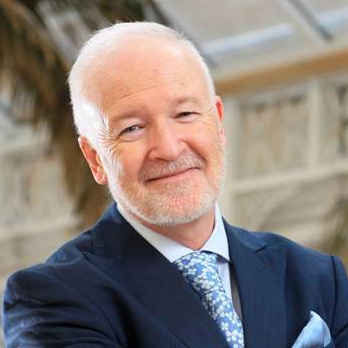
Jeff French is a recognised global leader in the application of behaviour change and social marketing. Jeff has extensive experience of developing leading and evaluating behaviour change projects, social marketing programmes and the development of communication strategies at international, national, regional and local level. With over 30 years experience at the interface between government, public, private and NGO sectors Jeff has a broad practical and theoretical understanding of national and international health and social development issues. Jeff and has published over 70 chapters, articles and books in the fields of behaviour change, social marketing, community development, health promotion and communications. Jeff is a visiting professor at Brunel University and Brighton University and a Fellow at Kings College University London and teaches at four other Universities in the UK. Jeff was the Director of Communication and Policy at the Health Development Agency for five years from 2000 – 2005. In March 2005 From July 2006 through to July 2009 Jeff set up and managed the National Social Marketing Centre for England. In August 2009 Jeff became the Chief Executive of Strategic Social Marketing Ltd. | |
| 11:00 to 13:00 | City Tours with Invisible Cities |
Invisible (Edinburgh) is operated by Invisible Cities, a global social enterprise that trains people who have experienced homelessness to become walking tour guides of their own city. Follow one of their walking tour guide along the streets of THEIR Edinburgh. A volunteer will take you from the conference venue to the start of the tour and you will discover: the story of Maggie Dickson and the last public execution place in Edinburgh - the story of local hero Bobby Greyfriars, but also local stories of projects that support the most vulnerable members of our society. The tour will end near the Scottish Parliament which you can explore in your own time or visit the many local cafés and bars in the area. Tours can be booked at the conference registration desk at £25 per person. Max tour size 12 people. | |
| 12:00 to 14:00 | City Tours with Invisible Cities |
Invisible (Edinburgh) is operated by Invisible Cities, a global social enterprise that trains people who have experienced homelessness to become walking tour guides of their own city. Follow one of their walking tour guide along the streets of THEIR Edinburgh. A volunteer will take you from the conference venue to the start of the tour and you will discover: the story of Maggie Dickson and the last public execution place in Edinburgh - the story of local hero Bobby Greyfriars, but also local stories of projects that support the most vulnerable members of our society. The tour will end near the Scottish Parliament which you can explore in your own time or visit the many local cafés and bars in the area. Tours can be booked at the conference registration desk at £25 per person. Max tour size 12 people. | |
| 12:30 to 15:00 | Pre-registration |
Early collection of delegate packs will be available from 12.30 on Monday at the main conference registration desk. The presentation drop for anyone presenting at the conference will also be open from this time. | |
| 14:00 to 16:00 | City Tours with Invisible Cities |
Invisible (Edinburgh) is operated by Invisible Cities, a global social enterprise that trains people who have experienced homelessness to become walking tour guides of their own city. Follow one of their walking tour guide along the streets of THEIR Edinburgh. A volunteer will take you from the conference venue to the start of the tour and you will discover: the story of Maggie Dickson and the last public execution place in Edinburgh - the story of local hero Bobby Greyfriars, but also local stories of projects that support the most vulnerable members of our society. The tour will end near the Scottish Parliament which you can explore in your own time or visit the many local cafés and bars in the area. Tours can be booked at the conference registration desk at £25 per person. Max tour size 12 people. | |
| 15:30 to 18:00 |
Sharing Knowledge for Best Practice in Social Marketing Education Room: Edinburgh Suite |
Professors and practitioners of social marketing are cordially invited to bring together ideas about best practices in social marketing education. Kathleen Kelly, PhD, Professor of Marketing at Colorado State University will lead an interactive session where academics and practitioners can share best practices and resources for social marketing curriculums. A paper on social marketing education was produced in 2009, and the purpose of this session is to gather information that can be used to update this important resource. We want your course to be represented so please bring a copy of your syllabus and a few extra to share with other participants. | |
| 17:30 to 18:15 | Speed Mentoring - Practice |
Building on the success of the Speed Mentoring Session in Washington, this session will be the first of two Speed Mentoring sessions. This speed-mentoring session is a terrific opportunity for new social marketing professionals to seek guidance, knowledge and wisdom from mentors who have “been there, done that”. This session will focus on social marketing in practice. Mentors and mentees interested in learning about or sharing experiences about academic social marketing are welcome to attend this session, but encouraged to attend the session on Wednesday June 5th from 12:45- 1:30. Join us!To be a mentor, please sign up here: https://forms.gle/4Lgn4o4DN3sixma6A To be a mentee, please sign up here: https://forms.gle/JMwww7eZ5kV9jEAX8 | |
| 18:00 to 20:00 | Welcome Drinks – Free to all delegates |
Location: Main conference foyer, Sheraton Grand Edinburgh Join the World Social Marketing Conference Committee, workshop facilitators, and delegates for free drinks and networking. The drinks will be opened with a short address, with remarks on the evolving social marketing landscape and what to expect in the coming two days. | |
4 June 2019
| 08:30 to 10:15 |
Opening plenary Speakers: Pauline Aylesbury, Nicci Motiang, Ann Don Bosco, Dr Abi Badejo |
Official Welcome and Opening Remarks The conference will be officially opened by Academic Chair Prof Sally Dibb and representatives from the Scottish Government. Session Chair: Prof Sally Dibb, WSMC Academic Chair, Coventry University Keynote Presentations
"From co-creation to positive deviants: citizens at the heart of social marketing campaigns” The Scottish Government have worked increasingly to ensure their social marketing campaigns are informed by citizens’ experiences and needs. Their innovative parent strategy puts parent needs first ahead of organisational and topic silos, providing parents with what they need in the moment. The ensuing ParentClub campaign was developed via extensive user testing and the input of specially recruited Parent Panels. Scottish Government have built on the success of this approach to develop other joined-up initiatives with regards to driver behaviour, cancer detection, mental health and risk behaviours. Believing that we have much to learn from those who have successfully undertaken change themselves, Scottish Government have also prioritised learning from “positive deviants”. They will share key insight and lessons learned, with implications for social marketers across a wide range of audiences and policy areas.
“Innovation within public health marketing” This talk will cover Public Health England’s (PHE) approach to marketing - from campaign planning through to delivery and evaluation. It will showcase new approaches PHE is using within audience insight to understand the subconscious, how PHE embeds behavioural theory within its campaigns and how it uses data to understand audiences and target communications. It will draw on examples from PHE campaigns including Change4Life, Talk to FRANK and Keep Antibiotics Working to showcase how PHE has been able to engage millions of people in their health.
“Social Marketing in the Face of Oppression: A Call to Arms against Human Trafficking and Other Social Ills” In this keynote speech, Dr Abi Badejo will share the story of Grace + Grit Social Enterprise – a social marketing intervention to combat human trafficking through research driven innovation and global partnerships. Dr Badejo will share her wins, impact and lessons learned so far from the frontlines of her work in Nigeria and Cameroon, where she is empowering vulnerable women, children and underserved communities to break the human trafficking supply chain. | |
| 10:15 to 10:45 | Coffee & Networking |
| 10:45 to 12:30 | Breakout Session 1 - Braemar - Parallel Presentations |
10.45 - 11.05 - Submission #180Title: Checking our blindspots Track: Advancing theory Social marketers often talk about their successes but rarely their failures. We will discuss our findings related to the most common mistakes made by social marketers, including potential ways that these might be avoided in the future. Presenter: Julie Cook & Sarah Fries Authors: Julie Cook; Sarah Fries; Dr. Jennifer Lynes
11.10 - 11.30 - Submission #53Title: Selecting and unpacking behaviours: A critical first step in developing effective behavioural change programs Track: Advancing theory The first step of community-based social marketing is behaviour selection. This interactive session will cover how to select which behaviors to target as well as how to “unpack” selected behaviours. Determining which behaviours to target, and developing a deep understanding of the selected behaviours, is a critical first step in delivering effective social marketing programs. Presenter: Doug McKenzie-Mohr, Ph.D. Authors: Doug McKenzie-Mohr, Ph.D.
11.35 - 11.55 - Submission #40Title: Let’s stop reinventing the wheel: How existing segmentation strategies can be overlaid on to new consumer data Track: Advancing theory Segmentation is well regarded as an effective strategy to optimise resources for program delivery by governments, private companies, and NGOs. With segmentation methodologies becoming easier to implement, measure and test, their usage has increased drastically since Smith's (1956) seminal work. However, new versions are being created with such frequency that instead of testing and comparing competing models, new versions of very similar segmentation strategies are being created. Instead of constantly reinventing the wheel, researchers and practitioners should be able to take what already exists and test it through the lens of their data. As such, this work examines an existing segmentation model and applies it to new data. Using mixture modelling the process is demonstrated and some mechanisms for assessing alignment are discussed. Presenter: Ryan McAndrew Authors: Ryan McAndrew, Postdoctoral research fellow, Queensland University of Technology (QUT), Australia; Kate Letheren, Postdoctoral research fellow, QUT, Australia; Rebekah Russell-Bennett, Professor, QUT, Australia; Charmaine Glavas, Senior Lecturer, QUT, Australia; Rory Mulcahy, Lecturer, University of Sunshine Coast; Australia.
12.00 - 12.35 - Submission #48Title: Enhancing promotion through conjoint analysis: opportunities for research on Social Networking Sites and web-based communication Track: Advancing theory This session focuses on the role of promotion in social marketing and the opportunities provided by social media to improve communication to promote healthy behaviors. Studies have shown that using social media in a public health intervention is not per se effective in promoting behavior change. By exploring preference structures, conjoint analysis has the potential to increase the effectiveness of promotional materials and improve our understanding of how different people are influenced differently by those messages. Presenter: Silvia Sommariva Authors: Silvia Sommariva, College of Public Health, University of South Florida, Tampa (USA), Jason Beckstead, College of Public Health, University of South Florida, Tampa (USA), Ellen Daley, College of Public Health, University of South Florida, Tampa (USA), Mahmooda Pasha, College of Public Health, University of South Florida, Tampa (USA), Dinorah Martinez Tyson, College of Public Health, University of South Florida, Tampa (USA) | |
| 10:45 to 12:30 | Breakout Session 1 - Culzean - Parallel Presentations |
10.45 - 11.05 - Submission #83Title: Unexpected Intersections: How breaking down silos can advance human health, wildlife conservation and social change Track: Interdisciplinary and cross sector action This session will provide the background for an intersectional topic (family planning, consumption, habitat and wildlife), describe current work being done by the Center for Biological Diversity around the nexus topic, and seek attendee’s input to help build a formal theory of change for the Center’s population and sustainability work. Presenter: Kelley Dennings, Population Campaigner, Center for Biological Diversity, USA Authors: Kelley Dennings, Population Campaigner, Center for Biological Diversity, USA
11.10 - 11.30 - Submission #211Title: Leave It 2.0: A social marketing approach for koala conservation Track: Climate change, environment protection, sustainability Dog attacks are amongst the most common causes of koala deaths. Engaging the community in programs designed to promote wildlife conservation is of essence to achieve more effective programs. Following the successful implementation of a pilot program focussed on providing dog training in basic obedience skills and embedding wildlife aversion into the program, Leave It 2.0 is currently being implemented city-wide. The program is designed to improve basic dog obedience behaviours and wildlife aversion through increased dog training in the local city council area. Presenter: Professor Sharyn Rundle-Thiele Authors: Dr. Patricia David, Research Fellow, Social Marketing @ Griffith, Griffith University, Australia, Dr. Bo Pang, Research Fellow, Social Marketing @ Griffith, Griffith University, Australia, Professor Sharyn Rundle-Thiele, Director, Social Marketing @ Griffith, Griffith University, Australia, Francisco Crespo, PhD Student, Australian Catholic University, Australia
11.35 - 11.55 - Submission TBDTitle: Track: Presenter: Authors:
12.00 - 12.35 - Submission #42Title: Is social marketing used in demand reduction campaigns for illegal wildlife products? Insights from elephant ivory and rhino horn Track: Climate change, environment protection, sustainability The illegal wildlife trade is a global threat to biodiversity as well as public health and good governance. Social marketing is increasingly being used to support biodiversity conservation efforts, but the extent of its use has seldom been researched. Our findings highlight that there are substantial gaps between best practice in social marketing and current practices in the design of demand reduction campaigns. However, several elements of social marketing are widely utilised. Presenter: Diogo Veríssimo & Steven Greenfield Authors: Diogo Veríssimo, Oxford Martin Fellow, University of Oxford, UK, Steven Greenfield, Cambridge Institute for Sustainability Leadership, University of Cambridge | |
| 10:45 to 12:30 | Breakout Session 1 - Dunvegan - Parallel Presentations |
10.45 - 11.05 - Submission #124Title: SKY Girls GH: A tobacco prevention campaign for teen girls in Ghana Track: Reducing the impact of addiction To combat the rise of tobacco use amongst young people across sub-Saharan Africa, SKY Girls is a multi-channel behaviour change campaign that aims to strip the aspiration out of smoking and empower young people to refuse tobacco. Presenter: Jennie Mitchell, Senior Consultant, Good Business UK Authors: Larissa Persons, Director of Strategy, Good Business UK. Jennie Mitchell, Senior Consultant, Good Business UK
11.10 - 11.30 - Submission #16Title: Intercultural comparison of social and cultural factors shaping adolescents’ perceptions of graphic health warnings on cigarette packages: the case of the United Kingdom and the State of Qatar Track: Promoting global health The session presents results from a study that explored adolescents’ perception of GHW across differing cultural contexts to establish the communicative relationship between context-specific and cross-cultural public health communication in tobacco control. Results also include adolescents’ suggestions for alternative warning label messages. Presenter: Nadia Fanous Authors: Nadia Fanous (PhD student, University of Glasgow, UK), Heide Weishaar (Honorary research fellow, University of Glasgow, UK), Shona Hilton (Professor, University of Glasgow, UK), Thomas Anker (Senior lecturer, University of Glasgow, UK)
11.35 - 11.55 - Submission #128Title: Breathe: co-design and launch of a new three tier smoking cessation service Track: Reducing the impact of addiction Camden & Islington councils commissioned Hitch to develop a new stop smoking service to achieve the reductions set out in the Smokefree Strategy. Hitch reviewed existing stop smoking service provision, delivered recommendations for service designs, co-designed the service brand and supported with the launch of the new service. Presenter: Nick Godbehere Authors: Holly Dixon
12.00 - 12.35 - Submission #164Title: Quit Big Tobacco: taking on Big Industry through their friends in advertising and PR Track: Interdisciplinary and cross sector action Advertising and PR agencies are a crucial aid to the tobacco industry – but they don’t have to be. Quit Big Tobacco has united over 175 pledge agencies and organizations from advertising, PR, and health, that refuse to work with Big Tobacco or the ad & PR firms that do. Presenter: Steve Hamill Authors: Christina Curell, Steve Hamill | |
| 10:45 to 12:30 |
Breakout session 1 - Edinburgh Suite - Special Sessions Speakers: Professor Jeff French |
10.45 – 11.45 PANEL SESSION: Ethics in Social Marketing This insightful session will present the current work on the new Ethical Social Marketing Standards being developed by the International Social Marketing Association (iSMA) and will involve an interactive ‘Ethics Ramble’ through some of the current ethical issues facing social marketers. Panel Members 10.50 – 12.30 SPECIAL PRESENTATION: '25 Years in Social Marketing. A reflection on lessons learned and looking to the future' Presenter: Nancy Lee Nancy Lee, coauthor of 10 books on Social Marketing with Philip Kotler, will share 25 project memories, each illustrating a principal for success when designing key components of a strategic social marketing plan, ones including: Purpose & Focus, Priority Audience, Desired Behavior, Audience Insights, Positioning, Marketing Intervention Tools, Evaluation, Budgets, and Implementation. She will conclude with a presentation (and song) about her dream for social marketing in the future, and what she thinks it will take to get social marketing “in orbit”. | |
| 10:45 to 12:30 | Breakout Session 1 - Glamis - Parallel Presentations |
10.45 - 11.05 - Submission #149Title: Reimagining USDA’s social marketing campaign for a new generation of breastfeeding WIC moms Track: Promoting global health This session will discuss innovative formative research and the results and insights that informed development of a new breastfeeding social marketing campaign, including behavioural objectives, audience segmentation, messages, and intervention strategies around the 4Ps—all with the goal of increasing breastfeeding rates among low-income women. Presenter: Jennifer Wayman Authors: Roshni Devchand, Vice President, Strategic Planning, Research, & Evaluation, Hager Sharp, USA; Elizabeth Osborn, Vice President, Hager Sharp, USA; Jennifer Wayman, President & CEO, Hager Sharp, USA
11.10 - 11.30 - Submission #31Title: A mobile health intervention: Using creative technology to raise breast cancer awareness in India. Track: Promoting global health Statistics show by 2020 breast cancer is set to become the most common type of cancer among all women in India, the highest mortality rate occurring in those aged 30-50 years. The single largest impact on breast cancer in India will come from raising breast cancer awareness and educating women and their communities about self- examination techniques as an early prevention mechanism .This study aims to change behaviour to normalise self-breast examination by women in India via the implementation of a mobile digital application (MDA) intervention via Accredited Social Health Activists (ASHAs) to challenge a serious public health phenomenon in India. The researchers undertake a robust and substantive solution to the research objectives and undertake a longitudinal study with 7 sequential stages of data collection. Stages 1-3 have been completed. The mhealth social offering of this study is determinable as better health and well-being for Indian women, empowerment for women and normalisation of discussions about breast healthcare. Presenter: Judith Fletcher-Brown and Diane Carter University of Portsmouth Authors: Judith Fletcher-Brown and Diane Carter University of Portsmouth,UK.
11.35 - 11.55 - Submission #108Title: “I love my child, I give him Koba Aina”: Combining Social Marketing and Behaviour Change Communication to sustainably combat malnutrition in Madagascar Track: Promoting global health In Madagascar, 47.8% of children under 5 years suffer from chronic malnutrition. Feeding practices are inadequate. Through Social Marketing Nutri'zaza proves that it is possible to improve nutritional practices by triggering interest for and consumption of adequate and aspirational complementary foods among vulnerable population with low purchasing power. Presenter: Clémence BOULLE MARTINAUD - Nutrition projects officer & Social Marketing specialist - GRET NGO - France Authors: Clémence BOULLE MARTINAUD - Nutrition projects officer & Social Marketing specialist - GRET (NGO) – France & Mieja Vola RAKOTONARIVO - Managing Director - NUTRIZAZA (social entreprise) - Madagascar
12.00 - 12.35 - Submission #219Title: Making Knowledge Hereditary: Public Private Partnership Drives Progress in Rare Disease Community Track: Interdisciplinary and cross sector action The My Life, Our Future (MLOF) partnership was created to advance scientific understanding of hemophilia, a rare genetic bleeding disorder. Utilizing the principles of social marketing, MLOF drove broad community engagement and created the largest research repository of its kind. Presenter: David Kyne, CEO, KYNE Authors: Amanda Mulally, MA, Senior Vice President, KYNE, USA; Val Bias, Chief Executive Officer, National Hemophilia Foundation, USA; Crystal Watson, President & Chief Executive Officer, American Thrombosis and Hemostasis Network, USA; Ilana Yellen, Senior Manager, KYNE, USA; Allison Maxwell, MPH, Senior Associate, KYNE, USA; Barbara Konkle, MD, Associate Chief Scientific Officer, Director, Hemostasis, Platelet Immunology, and Genomics Laboratory, Bloodworks Northwest, USA | |
| 10:45 to 12:30 | Breakout session 1 - Melville - Interactive Sessions |
10.45 - 11.30 - Submission #9Title: Applying Insight and behaviour change methods to local authority services: Hampshire County Council Home to School Transport Service Track: Using systems thinking to solve complex societal problems This workshop will present how a six-step insight and behaviour change methodology is being piloted to address transformation challenges across the County Council. This workshop will describe a live case study with the Home to School Transport Service, including the insight we gained from customers and staff, and the behavioural interventions being introduced and evaluated. Presenter: Helen Cutler and Martin Goff Authors: Robert Ormerod
11.35 - 12.20 - Submission #38Title: Social Marketing Bloopers: Learning from past mistakes Track: Promoting global health In social marketing, people often only talk about the successes and academic journals rarely publish studies which achieved negative results. However, rarely does a social marketing project go fully to plan, especially when you are working with multiple stakeholders and government departments. Being honest about the mistakes made is important to move the discipline forward, and help others learn so mistakes are not duplicated. This fun session will be fully interactive. Participants will get an opportunity to hear about a variety of social marketing projects where some things worked well, but where not everything went to plan! These projects will be from all over the globe, including specific examples from Vietnam, UK, Ethiopia and Jordan. Participants will then have the opportunity to share their own experiences and lessons learnt. Presenters: Rowena Merritt, John Bromley and Ellie Lewis Authors: Rowena Merritt, Director at the NSMC; John Bromley, Director at the NSMC; and Ellie Lewis, Public Health Officer, Westminster County Council | |
| 10:45 to 12:30 | Breakout Session 1 - Private Dining Room - Parallel Presentations |
10.45 - 11.05 - Submission #192Title: WE ARE SCOTLAND Track: Crime, safety, security and social cohesion The Scottish Government is committed to building a fair, smart and inclusive Scotland where everyone can feel at home. This presentation describes how we used social marketing to promote inclusivity in communities by raising awareness of the positive impact of the country’s diversity and shared inclusive values. Presenters: Katherine McIsaac & Thea McGovern Authors: Claire Prentice, Head of Safer & Greener Marketing, Scottish Government, Katherine McIsaac, Strategy & Insight Lead, Scottish Government & Thea McGovern, Associate Planner, The Leith Agency
11.10 - 11.30 - Submission #194Title: MOBILISING SCOTLAND TO STAND UP TO HATE CRIME Track: Crime, safety, security and social cohesion We will take you on a journey through the development, execution and evaluation of the Scottish Government's 'Dear Haters' campiagn which ran in 2018 to nudge bystanders in Scotland to report hate crime if they witness it. Presenter: Claire Prentice & Katherine McIsaac Authors: Claire Prentice, Head of Safer & Greener Marketing, Scottish Government, Katherine McIsaac, Strategy & Insight Lead, Scottish Government, Thea McGovern, Associate Planner, The Leith Agency
11.35 - 11.55 - Submission #214Title: Do Stakeholders of Change Really Matter? Track: Climate change, environment protection, sustainability Do you struggle with stakeholder participation in your social marketing programmes or initiatives? This presentation will provide proven tasks, tools and activities for effective stakeholder participation. It will show that working ‘with’ stakeholders, rather than ‘on’ their behalf can build bridges and transform societies. Stakeholders of change really DO matter! Presenter: Christine Domegan Authors: Patricia McHugh, Christine Domegan, Easkey Britton, Paula Kellett, Sheila J. J. Heymans, Julia Vera, Mariluz Parga, Lora E. Fleming, Claire Eatock
12.00 - 12.35 - Submission #64Title: Using radio drama to improve social cohesion in Myanmar Track: Crime, safety, security and social cohesion BBC Media Action’s ‘Tea Cup Diaries’ radio drama aims to increase audiences’ understanding, openness and respect for people from different ethnic and religious backgrounds. This session will present results from a recent quantitative evaluation, discuss how research is informing development of the project and invite discussion on how to influence social cohesion through social marketing. Presenter: Sally Gowland Authors: Alasdair Stuart, Senior Research Manager/Senior Advisor, BBC Media Action, UK | |
| 10:45 to 12:30 | Breakout session 1 - Stirling - Interactive Sessions |
10.45 - 11.30 - Submission #58Title: Social practice theory and social marketing: Acknowledging how the human and more-than-human affect social change Track: Critical social marketing This interactive workshop will explore the potential for ideas, concepts and thought tools from theories of practice to contribute to social marketing knowledge and action, and how social marketing can enable and enrich theories of practice. The session will explore case studies on practice-oriented social change in two contexts. Firstly, a UK case study on social change in schools, focusing on physical activity, will be explored. Secondly, work concerning the nexus of energy consumption, climate change and sustainability, and health and wellbeing among lower income older people, and families will be considered. Presenter: Fiona Spotswood and Ross Gordon Authors: Fiona Spotswood and Ross Gordon
11.35 - 12.20 - Submission #207Title: Leveraging Segmentation for the Greatest Impact: A Comprehensive Approach to Strategic Planning for Social Marketing Programs Track: Critical social marketing Many social marketing programs attempt to reach broad populations with general market campaigns. This session argues that mass reach programs are only effective in specific scenarios where the majority of the population needs to change its behavior. More often, broad strategies are used to reach subpopulations. By overlooking what makes those subpopulations different from the general population, generally targeted programs fail to reach their intended audience. This talk will present peer crowd campaign principles, how advanced audience segmentation could improve efforts to change behavior over time, and how these strategies can effectively be applied across traditional media, digital, social, interactive media, and local outreach, using several recent social marketing program examples. Presenter: Jeffrey Jordan Authors: Jeffrey Jordan and Sophia Lerdahl, Rescue | |
| 12:30 to 13:30 | Lunch |
| 13:30 to 14:30 |
Afternoon plenary Speakers: Bill Novelli, Alex Aiken |
Session Chair: Matt Howick, Social Marketing Gateway Keynote Presentations
“Delivering Quality Campaigns at Scale” Alex will explain the use of social marketing principles at scale across the campaigns run by the UK Government. It will set out the role, benefits and systems used to create high quality social interventions and the lessons from using rigorous evaluation and peer review to assess impact. The session will cover the experience of the practical application of social marketing in terms of developing tools for practitioners to use to influence their organisations.
"Leveraging the Power of the Private Sector for Social Impact" Corporations have long been engaged in social change, some as core strategies (doing well by doing good), some because “it’s just the right thing to do,” and others to greenwash or to change the subject about the source of their profits. While public trust in corporations is declining, the public expects companies to increase efforts to do create social good and make the world a better place. Based on a long career (with lots of bumps, bruises and scar tissue to show for it), I will talk about why we need companies at the table, in the field and in policy makers’ offices, and how to influence their performance. | |
| 14:30 to 14:45 | Coffee & Networking |
| 14:45 to 17:00 | Breakout session 2 - Braemar - Parallel Sessions |
2.45 - 3.05 - Submission #224Title: It Starts With Me: Insights Into a Successful National HIV Prevention Campaign Track: Promoting global health It Starts With Me (ISWM) is an award-winning social marketing campaign aiming to cut new HIV infections in England. It promotes testing and prevention messages and behaviours amongst Men who have sex with men (MSM) and Black Africans (BA), who have the highest prevalence and new diagnoses rates of HIV in the UK. Presenter: Takudzwa Mukiwa – Head of Social Marketing (Terrence Higgins Trust) - UK Authors: Chamut Kifetew – Programme Manager – HIV Prevention Programme (Terrence Higgins Trust) – UK, Takudzwa Mukiwa – Head of Social Marketing (Terrence Higgins Trust) – UK, Natasha Ross - Research Manager (Kantar Public) – UK, Dominic Edwardes – Executive Director of Digital and Communications (Terrence Higgins Trust) - UK
3.10 - 3.30 - Submission #27Title: A Parent's Mobile Device Engagement and The Well being of Children: What's the connection? Track: Critical social marketing This study investigates consumers’ mobile device engagement in the family setting. Specifically, the effects of a parent’s mobile device engagement on their child(ren)’s wellbeing. Using empirical data from 267 parent-child dyads data from Indonesia, this study provides insights for social marketers to promote a healthy level of mobile device consumption Presenter: Yenny Purwati or Linda Robinson Authors: Yenny Purwati- PhD student; Linda Robinson - Senior lecturer; Kaleel Rahman - Senior Lecture, RMIT University, Melbourne, Australia
3.35 - 3.55 - Submission #89Title: Benefits and challenges of social media: a social marketing review Track: Digital and technological impact on social behaviour There has been limited investigation into how social marketers incorporate social media in social marketing campaigns. Recognising the potential of social media as an integral driver of communication that facilitates two-way conversations, this review seeks to identify and synthesise salient benefits and challenges of social media usage in social marketing campaigns conducted worldwide between 2005 and 2017. Following a systematic literature review procedure, twenty-nine social marketing campaigns utilising social media communications channels were identified. The findings were thematically grouped under eight main topics: targeted reach and raising awareness, continuous consumer insight, ongoing interaction and dialogue, promoting behaviour change, cost and time efficiency, discussing sensitive issues, building relationships and social media challenges. Identified taxonomies inform future research opportunities. Presenter: Sara Shawky Authors: Sara Shawky, Krzysztof Kubacki, Timo Dietrich and Scott Weaven
4.00 - 4.20 - Submission #169Title: The Drivers of Marketing Industry Leaders Track: Critical social marketing Through this conceptual session, we will to breakdown and explore current marketing trends and priorities, with the aim of inspiring attendees to pursue new and innovative approaches to their work. Presenter: Briana Ferrigno MPH MS, President, McCann Global Health, USA Authors: Briana Ferrigno MPH MS, President, McCann Global Health, USA
4.25 - 4.45 - Submission #15Title: Individual intentions, cultural capital and policy intervention: A social marketing theory integrating the three streams. Track: Advancing theory A conceptual model for social marketing capturing the three streams of interventions, focusing more on a holistic theory view that incorporates both the responsibility of the individual (Downstream), cultural capital (Mid-stream) and the effect of the policy (upstream) in adjusting a specific behaviour. Presenter: Shorouk Hamzawi Authors: Shorouk Hamzawi , Qing Shan Ding and Shabbir Dastgir
4.50 - 5.10 - Submission #3Title: Company Benefits & Social Benefits: Exploring Strategies for Multinational Consumer Goods Companies to Implement Mutually Beneficial Social Marketing Programs. Track: Advancing theory Presenter: Nashwa Nader Authors: Nashwa Nader | |
| 14:45 to 17:00 | Breakout session 2 - Culzean - Parallel Sessions |
2.45 - 3.05 - Submission #213Title: The Ultimate Immune Boost - Supporting WHO Global Action Plan for Seasonal Influenza Vaccinations using a Social Marketing Systems Methodology Track: Interdisciplinary and cross sector action With the permeation of systems thinking into social marketing gaining momentum, a social marketing systems methodology offers valuable multi-level systemic change potential. The WHO Global Action Plan (GAP 1 and 11) recommends that all healthcare workers (HCW) in health services annually receive the seasonal influenza vaccine (SIV) since HCW’s are at significantly higher risk of influenza (WHO 2016). Social marketing’s systems practice job is to listen to the system through a systems analysis; learn about the dynamics, through causal loop analysis and leverage the hospital system, structures and social mechanisms for substantive and sustainable increased flu vaccination rates.
Presenter: Dmitry Brychkov Authors: Patricia McHugh, Christine Domegan, Dmitry Brychkov, Aine McNamara, Katharine Harkin, Christine Fitzgerald and Diarmuid O’ Donovan
3.10 - 3.30- Submission #70Title: Obstacles and drivers of sport and physical activity in France: analysis of individual paths Track: Promoting global health One in two French people never do any sport. Encouraging physical activity requires a comprehensive approach of sport’s social representations as well as the individuals’ personal histories with sport. Our broad qualitative survey focused on these dimensions to help the French government design a national strategy to encourage physical activity. Presenter: Guillaume CALINE Authors: Laure SALVAING, Guillaume CALINE
3.35 - 3.55 - Submission #22Title: Families living with type 1 diabetes – it’s not “a piece of cake” Track: Promoting global health Globally over one million youths are living with type 1 diabetes. This non-preventive health condition significantly impacts the family’s quality of life. The aim of this research is to understand the impacts to family identity and suggest social marketing intervention opportunities to support families to live well. Presenter: Rachel Peile Authors: Rachel Peile, HDR Student, RMIT University, Australia; Professor Mike Reid, Marketing, RMIT University, Australia; Professor Lisa Farrell, Economics, RMIT University, Australia
4.00 - 4.20- Submission #170Title: A self-management educational intervention for persons with diabetes: findings on the support of social networks and its association with eating behaviors' changes Track: Promoting global health This study describes changes occurred in the eating behaviors and in the capacity to be self-effective in the daily activities among persons with diabetes after they attended a self-management program, and analyzes whether these changes are positive when persons received support from their relatives, other participants, trainers and their doctor. Presenter: Anna Maria Murante Authors: Anna Maria Murante, Assistant Professor, Sant'Anna School, Institute of Management, Management and Health Laboratory
4.25 - 4.45 - Submission #188Title: Hug, Nudge, Smack or Shove: How do consumers react to a social dilemma? Track: Climate change, environment protection, sustainability This research combines social marketing and behavioural economics– through the application of French’s behavioural forms exchange matrix (French, 2011) – to examine how interventions/levers encourage electricity consumers to use less electricity during event days (e.g., days of extreme heat/cold), reducing the load on infrastructure and helping to keep prices lower. Presenter: Rebekah Russell-Bennett Authors: Rebekah Russell-Bennett, Kate Letheren, Uwe Dulleck, Stephen Whyte, Martin Brumpton & Lucy Orr
4.50 - 5.10 - Submission #114Title: Ageism in marketing: Exploring the impact of stereotype threats on the identity of the older consumer Track: Critical social marketing Based on semi-structured depth interviews with Australian consumers aged 55-69, this paper explores marketing practices experienced by older consumers that constitute a stereotype threat and the self-protection mechanisms these consumers use to distance themselves from negative stereotypes of aging. Presenter: Kate Westberg Authors: Professor Kate Westberg, Professor Mike Reid, Associate Professor Foula Kopanidis; RMIT University | |
| 14:45 to 17:00 | Breakout session 2 - Dunvegan - Parallel Sessions |
2.45 - 3.05 - Submission #176Title: Beyond ‘I Do’: Countervailing Narratives around LGBT Acceptance Track: Promoting equality and reducing inequality The 2015 legalization of same sex marriage in the U.S. was the culmination of one of the most effective social movements in recent memory. While many Americans consider the issue of LGBT equality “settled,” LGBT Americans continue to face discrimination in areas such as employment, housing, and health care. This presentation provides an overview of a national campaign initiated to address these inequities, in a distinctly American context. Presenter: Tony Foleno, SVP Strategy & Evaluation, Ad Council, USA Authors: Tony Foleno, SVP Strategy & Evaluation, Ad Council, USA
3.10 - 3.30 - Submission #67Title: Rapid assessment of the gender responsiveness of social marketing interventions about neglected tropical diseases Track: Promoting equality and reducing inequality This study builds on the evidence gathered from a systematic review of social marketing interventions that address neglected tropical diseases and applies an adapted version of the World Health Organization Gender Assessment Tool to assess their gender responsiveness. Presenter: Nathaly Aya Pastrana, BeCHANGE Research Group, Institute for Public Communication, Università della Svizzera italiana, Lugano, Switzerland Authors: Nathaly Aya Pastrana, BeCHANGE Research Group, Institute for Public Communication, Università della Svizzera italiana, Lugano,Switzerland, Claire Somerville, Gender Centre, Graduate Institute of International Studies, Geneva, Switzerland, L. Suzanne Suggs, BeCHANGE Research Group, Institute for Public Communication, Università della Svizzera italiana, Lugano, Switzerland
3.35 - 3.55 - Submission #187Title: Increasing female student retention in university STEM programs: Co-designing innovative solutions Track: Promoting equality and reducing inequality This paper discuss an innovative solution created by engaging consumers in a STEM female retention social marketing program development. Presenter: James Durl Authors: Jeawon Kim, James Durl, Carina Roemer, Bo Pang and Sharyn Rundle-Thiele
4.00 - 4.20 - Submission #134Title: Inclusive Marketing: a tool for universal satisfaction. Include, don´t be left out Track: Promoting equality and reducing inequality People with some type of disability is the biggest minority of the world: 15% of the world´s population according to World Health Organization estimates. Inclusive marketing considers diversity not as a problem but rather as a good chance for innovation, upgrading quality for all users, aiming for universal satisfaction. Presenter: Silvia Azpilicueta, Fundación Iddeas & Chief of Retail Department, Pamplona City Hall Authors: Silvia Azpilicueta, Fundación Iddeas & Chief of Retail Department, Pamplona City Hall. Luis Casado, Founder and President, Fundacion Iddeas
4.25 - 4.45 - Submission #103Title: "It just gives you a good feeling, doesn't it!" – preliminary learnings from a pilot intervention to reduce volunteering in orphanages overseas Track: Promoting equality and reducing inequality The growth in popularity among gap year students and short-term missionaries for orphanage volunteering is creating a demand for 'orphans' and weakening care reform efforts in low- and middle-income countries. This intervention aims to reduce the number of young people in the UK and the USA who volunteer in orphanages. Presenter: Justine Williams and Rowena Merritt Authors: Justine Williams, Global Campaign Manager, Better Care Network, UK and Rowena Merritt, Head of Research, National Social Marketing Centre, UK
4.50 - 5.10 - Submission #163Title: "No to Circumcision": The Road to Effective Social Marketing Campaigns in Egypt Track: Promoting equality and reducing inequality This study sought to understand how, where and why social marketing campaigns (SMCs) for FGM/C abandonment in Egypt are working to inform design and scale up of campaigns that can foster new perspectives, expectations and behaviours. Presenter: Nada Wahba Authors: Salma AbouHussein & Sarah Ghattass | |
| 14:45 to 17:00 | Breakout session 2 - Edinburgh Suite - Panel and Parallel Sessions |
2.45 – 4.00 - PANEL SESSION: The Evidence Base for Social Marketing There is a large and growing evidence base for the effectiveness of social marketing. But many challenges have emerged in recent years, including the ubiquitous presence of digital media and understanding its effects on behavior, the need to translate and disseminate evidence to policy makers to ensure support for social marketing, and the importance of engaging and co-developing evidence with diverse stakeholders worldwide. This plenary panel presents perspectives on the nature, current state, and future of social marketing evidence from the academic, donor, and practitioner sectors. Panelists:
4.05 - 4.25 - Submission #32Title: Systems Social Marketing and Macro-Social Marketing; A Systematic Review and Methodological Critique of the Literature and Interventions Track: Using systems thinking to solve complex societal problems This session addresses a gap arising from an emerging theoretical image of systems-based approaches in social marketing. It tightens the level of systems social marketing and macro-social marketing theorization to advance social marketing theory through a systematic literature review of same. It identifies some basic trends which demonstrate practical insights for the progress of systems thinking in social marketing. Presenter: Dmitry Brychkov & Tina Flaherty Authors: Dr. Christine Domegan, Senior Lecturer NU Galway; Dmitry Brychkov, PhD candidate, NUI Galway; Tina Flaherty, PhD Candidate, NUI Galway; Mihir Anand, Safefood Social Marketing Research Fellow, Dr. Sinead Duane, Postdoctural Researcher, Whitaker Institute, NUI Galway, Dr. Patricia McHugh, Lecturer in Marketing, NUI Galway and Dr. Aileen McGloin, Director of Marketing and Communications, Safefood
4.30 - 4.50 - Submission #154Title: The Global Smart Drinking Goals Program: Influencing Alcohol-related Behaviours for Social Good Track: Reducing the impact of addiction The Global Smart Drinking Goals (GSDG) Initiative is a novel public-private partnership model to reduce the harmful use of alcohol. The program operates in Belgium, Brazil, China, Mexico, South Africa and the United States, using evidence-based interventions, including social marketing campaigns, to change behaviors and norms related to underage drinking, binge drinking and drink driving. Presenter: Allison Goldberg, Executive Director, AB InBev Foundation; Cata Garcia, Global Director, Corporate Affairs, AB InBev Authors: Allison Goldberg, Executive Director, AB InBev Foundation; Cata Garcia, Global Director, Corporate Affairs, AB InBev
4.55 - 5.15 - Submission #142Title: Understanding the Drivers of Youth Social Action in Economically Challenged Communities: a Deep Dive Qualitative Study with Young People Track: Interdisciplinary and cross sector action By considering a young-person centric view of social action, we suggest that participation in social action could be encouraged among lower socio-economic groups if a ‘closer to home’ view of the concept was embraced: one that valued the positive social action young people say they engage with in order to help and care for family members and friends. The importance of communal motivation is also highlighted, while the findings suggest that barriers to taking action may be geographically based. Presenter: Irene Garnelo-Gomez Authors: Irene Garnelo-Gomez and Kevin Money | |
| 14:45 to 17:00 | Breakout session 2 - Glamis - Parallel Sessions |
2.45 - 3.05 - Submission #226Title: Change4Life: Building and activating a cross sector coalition of partners to change behaviours in relation to childhood obesity Track: Promoting global health This paper is a case study setting out how Change4Life developed mutually beneficial long-term strategic relationships with partners to reach the target audience, at critical points on the customer journey, in order to tackle childhood obesity. It will set out and explain how those partnerships were leveraged to deliver significant marketing support and drive behaviour change. Presenter: Helen Hampton and Jane Asscher Authors: Helen Hampton and Jane Asscher
3.10 - 3.30 - Submission #159Title: Influence of Personality Traits on Prosocial vs Aggressive Driving Behaviours Track: Crime, safety, security and social cohesion This study aims to investigate the relationship between overall driving behaviour and personality traits of drivers such as anger, altruism, and emotional intelligence and the moderating effects of fatalism on such relationship. By adopting both ‘prosocial’ and ‘aggressive driving behaviour’ dimensions in conceptualizing this overall driving behaviour, this study seeks to provide a better understanding of the same. Presenter: Dr. W. D. C. Jayawickrama Authors: Dr. W. D. C. Jayawickrama, Senior Lecturer, University of Sri Jayewardenepura, Sri Lanka. Dr. U. K. Thalgaspitiya, Senior Lecturer, University of Sri Jayewardenepura, Sri Lanka. S. D. Z. Siriwardana, Research Assistant, University of Sri Jayewardenepura, Sri Lanka
3.35 - 3.55 - Submission #195Title: Steering Young Drivers to Safety Through Virtual Reality Track: Crime, safety, security and social cohesion Making driving 'safer' is a challenge for young men due to high levels of confidence, and the presence of optimism bias and availability heuristics. Find out how Scottish Government and Road Safety Scotland adopted a digitally-led social marketing approach to engage young drivers towards behaviour change on country roads. Presenter: Lisa Sutherland (Strategy and Insight Lead) & Claire Prentice (Head of Safer Marketing) Authors: Lisa Sutherland, Strategy and Insight Lead, Scottish Government, Scotland
4.00 - 4.20 - Submission #102Title: Reducing food insecurity and vulnerability for older people Track: Using citizen focused design thinking This study explores food consumption practices which support or compromise food security for older people in order to inform social marketing initiatives and public policies that reduce vulnerabilities in later life. Presenter: Ariadne Beatrice Kapetanaki Authors: Ariadne Beatrice Kapetanaki, Senior Lecturer in Marketing, University of Hertfordshire, UK, Sue Halliday, co-ordinator of business, marketing and entrepreneurship, research institute, KLICE, UK, Wendy Wills, Professor of Food and Public Health, University of Hertfordshire, UK, Angela Dickinson, Senior Research Fellow, University of Hertfordshire, UK
4.25 - 4.45 - Submission #56Title: Type 2 on Track: Collaborative design and development Track: Using citizen focused design thinking Type 2 on Track used collaborative design to develop a Type 2 diabetes secondary prevention behaviour change program. Findings suggest targeting multiple behaviours using a motivational interview group-based program, combining education, self-management and action plans, delivered by health professionals with communication support provides a solid foundation for a successful program. Presenter: Dr Joy Parkinson Authors: Dr Joy Parkinson, Senior Lecturer, Griffith University, Australia, Kathleen O'Hara, Diabetes Manager, Western Queensland PHN, Australia, Dr Kathy Knox, Research Fellow, Griffith University, Australia, Haruka Fujihira, PhD Candidate, Griffith University, Australia
4.50 - 5.10 - Submission #129Title: Promoting the use of less salt in homemade food in families of preschoolers in Lima, Peru: results from a formative research study Track: Promoting global health Salt is a chemical compound, the essential seasoning in the preparation of food. This important input in the lives of people and their high consumption is considered by WHO as one of the risk factors that favour early death from cardiovascular diseases. To beat the problem of excess pressure in Peru, a training study was proposed with the objective of describing the barriers and motivators that influence the behaviour of people in relation to salt intake (sodium), and identify the determinants to propose a social marketing strategy that promotes the gradual reduction of salt consumption in selected households in the urban districts of Ventanilla and Miraflores. This abstract presents some results on the perspectives of women and women, with children at preschool age, in relation to the use and consumption of health, the findings that raise it are a social marketing plan that promotes the gradual decrease in salt intake. Presenter: Vilarmina Ponce-Lucero, Project Consultant at CRONICAS Center of Excellence in Chronic Diseases Authors: Lorena Saveedra, Project Coordinator at RONICAS Center of Excellence in Chronic Diseases, Silvana Perez-León, Research Assistant at t RONICAS Center of Excellence in Chronic Diseases, Erik Cateriano, Project Consultant at CRONICAS Center of Excellence in Chronic Diseases. Davida Villaroel, Trainee at CRONICAS Center of Excellence in Chronic Diseases, Diego Horna, Trainee at CRONICAS Center of Excellence in Chronic Deseases | |
| 14:45 to 17:00 | Breakout session 2 - Melville - Interactive Sessions |
2.45 - 3.30 - Submission #26Title: Two-Way Street: Social Media Strategies to Turn an Audience into a Community Track: Advancing theory As a result of this session, participants will learn how to engage their audience on social media by crafting authentic content, develop a social media community, and most importantly, listen to the audience and let their input shape the conversation. Presenter: Brandon Tate Authors: Brandon Tate and Jeffrey Jordan, Rescue
3.35 - 4.20 - Submission #21Title: Bringing Transmedia Storytelling into Your Social Marketing Program Track: Interdisciplinary and cross sector action This session will offer a practical model for integrating entertainment education-based transmedia storytelling across platforms into your social marketing program, as a method for engaging priority audiences and heightening the likelihood of behavioral change. Presenter: Nedra Kline Weinreich Authors: Nedra Kline Weinreich, President, Weinreich Communications, Israel
4.25 - 5.10 - Submission #135Title: Exploring Messaging and Mix to Get Smokers to Quit Track: Reducing the impact of addiction Interactive session through the eyes of a commissioner, researcher and campaign strategist to encourage quit attempts as part of Greater Manchester’s Making Smoking History programme. Delegates will role play using key social marketing concepts, then hear what approach was taken, based on key challenges and insights, for the campaign strategy. Presenters: Nick Godbehere & Sian Lambert Authors: Holly Dixon and Nick Godbehere | |
| 14:45 to 17:00 | Breakout session 2 - Private Dining Room - Parallel Sessions |
2.45 – 3.30 - Keynotes in Conversation and extended Q&A Put your questions to our speakers in a more intimate sitting during this extended Q&A and discussion session. Session Chair: Gael O’Sullivan, Georgetown University
3.35 - 3.55 - Submission #60Title: Why A Change In Financial Behaviour Does Not Always Trigger A Change In Financial Well-Being? Track: Financial literacy and wellbeing It is criticised that barely any literature has focused on social marketing products (Glenane-Antoniadis et al., 2003). Can financial education intervention be used as a social marketing product to promote financial behaviour change and well-being? This needs a creative approach to create financial well-being intervention using financial education as a social marketing product that can be marketed for social good. The main purpose of this study is to explore how to make use of online financial education to promote desirable financial behaviour change and well-being. Presenter: Tam-Nguyen Cousins Authors: Tam-Nguyen Cousins, The Open University Business School, Martin Upton, Senior Lecturer in Finance and Director of the Centre for the Public Understanding of Finance (PUFin), The Faculty of Business and Law, The Open University Business School, Helen Roby, Research Fellow, Faculty Research Centre for Business in Society, Coventry University, Visiting Research Fellow, Open University
4.00 - 4.20 - Submission #85Title: Pragmatic muddling, denial and magical thinking: The retirement voice of Australian Single Baby Boomer Women. Track: Financial literacy and wellbeing Senior, single baby boomer Australian women represent the lowest income earning family group, where 35% of this cohort live in poverty. This research offers insightful views of the complexity of retirement and implications for social marketers in the area of financial literacy. Presenter: Foula Kopanidis, Linda Robinson Authors: Foula Kopanidis, Associate Professor , RMIT University, Australia, Linda Robinson, Senior Lecturer, RMIT University, Australia, Diane Martin, Professor, RMIT University, Australia, Mike Reid, Professor, RMIT University, Australia
4.25 - 4.45 - Submission #17Title: From Public Will to Social Marketing: Lessons from a Campaign Promoting Trauma-Informed Care in Post-Katrina New Orleans Track: Mental health and wellbeing This session will use a case study of the In That Number campaign (New Orleans, Louisiana, USA) promoting attitudinal shifts & policy change for youth impacted by trauma to explore how a public will campaign can evolve into a social marketing campaign. When is the community sufficiently primed? Let’s discuss! Presenter: Iman Shervington Authors: Iman Shervington, MFA, Director of Media & Communications, Institute of Women & Ethnic Studies, United States; Lisa Richardson, PhD, Chief Impact Officer, Institute of Women & Ethnic Studies, United States; Denese Shervington, MD, MPH, President, Institute of Women & Ethnic Studies, United States
4.50 - 5.10 - Submission #18Title: Translating policy to practice: Theory-based formative research to improve EC OTC access and messaging in Italy Track: Mental health and wellbeing Italy's 2015 emergency contraception (EC) policy improved access yet barriers remain, including limited knowledge and provider/pharmacist refusal to dispense. The aim of the study was to understand Italian women’s EC experiences and policy knowledge to build theory-driven messaging reflective of this priority group’s need for improved access. Presenter: Stephanie Meier Authors: Stephanie Meier, PhD Student, Purdue University, USA; Emily Ball, Student, Purdue University, USA; Kathryn L. Jamieson, Student, Purdue University, USA; Scotlyn Sunkel, Student, Purdue University, USA; Andrea L. DeMaria, Assistant Professor, Purdue University, USA | |
| 14:45 to 17:00 | Breakout session 2 - Stirling - Interactive Sessions |
2.45 - 3.30 - Submission #63Title: Boosting motivation through autonomy and co-creation Track: Using citizen focused design thinking Did you ever try to persuade people to change by sharing your knowledge about social marketing and behavioural science? Do these people comply with your advice and does the target group apply it directly to their everyday life? That sure would be nice. But let’s be honest: no matter how powerful a message is, spreading knowledge rarely leads to a direct shift in behaviour. In this workshop participants are challenged to offer their target audience an experience rather than creating a perfect message. The aim of this workshop is to demonstrate how principles of autonomy and co-creation can boost motivation. After this workshop the participants have experienced how they became intrinsically motivated themselves, and have tools on how to boost motivation within their own target group. Presenter & author: Rik Baas
3.35 - 4.20 - Submission #77Title: Critique and discussion for social marketing practitioners and researchers: “There is nothing more practical than a good theory” Track: Critical social marketing In this session we advocate a need for evaluation and synthesis of current theoretical orientation in the field of social marketing. We incorporate critical appraisal to generate a practical structure for clarity to guide social marketing researchers and practitioners to integrate theoretical models, applications and implications with social marketing praxis. In this conceptual discussion we elaborate on defining and understanding the suitability of a theory, explore the application of and evaluation of theories, and discuss development and refinement of theory. We synthesise these ideas to provide some practical structure and recommendations for the researcher/practitioner in social marketing and related social scientific fields. Presenters: Knox, Kamin & Parkinson Authors: Dr. Kathy KNOX, Research Fellow, Social Marketing@Griffith, Department of Marketing, Griffith Business School, Griffith University, AUSTRALIA.
4.25 - 5.10 - Submission #72Title: Online courses as a tool for communications for social change Track: Digital and technological impact on social behaviour Having produced more than 20 online courses together with different international organisations we want to share the experience on how to use online courses as a communications tool for social change. We will present our lessons learn on Presenter & author: Anastasiia Nurzhynska | |
| 17:30 to 18:30 | Annual General Meeting of the iSMA |
The Board of the International Social Marketing Association would like to invite you to join us and your fellow iSMA members for our annual general meeting (AGM). The AGM will be an opportunity for members to meet our current Board members, ask questions about our financial position, annual report, and hear about our progress over the past year. | |
| 18:15 to 19:15 | SMANA Networking Drinks |
| 19:15 to 23:30 |
Burns Night Gala Dinner & Awards Speakers: Mark Beaumont |
Location: Main conference foyer & Edinburgh Suite Join keynote speakers, panelists and social marketing experts from across the world at the Burns Night themed gala dinner. We’ll be piping in the Haggis and giving delegates a taste of a traditional Burn’s Night dinner on what will be a great evening for networking and celebrating the 2019 round of World Social Marketing awards. 19.15 – 20.00 Pre-diner drinks from in the main conference lobby area 20.00 Doors open 20.10 Special Pre-dinner Presentation – Mark Beaumont 20.20 – 22.30 Gala dinner and ceremony of the World Social Marketing Achievement Awards 22.30 – 23.30 Drinks and networking | |
5 June 2019
| 08:30 to 09:45 |
Morning plenary Speakers: Jeff Jordan, Dulce Espelosin |
Welcome and Opening Remarks Session Chair: Professor Ross Gordon - Professor, School of Advertising, Marketing and Public Relations, QUT Business School Keynote Presentations
"Contributions of Social Marketing in Latinamerica" Human behavior lies at the center of conservation, both as the problem and the solution. Over the last 30 years, Rare has been working in Latinamerica to change behaviors through the use of Social Marketing. Join Dulce Espelosin at her presentation and you will learn about the work done in this great region with over 20 countries and get inspired by some of our stories in the field.
"Telling Stories That Change People" | |
| 09:45 to 10:15 | Coffee & Networking |
| 10:15 to 12:30 | Breakout Session 1 - Braemar - Parallel Presentations |
10.15 - 10.35 - Submission #122Title: Nugget – co-created mobile game challenges gendered realities for Indian adolescents Track: Using citizen focused design thinking BBC Media Action and UNICEF partnered in India to co-create “Nugget”, a mobile game, using citizen focused design thinking as part of a transmedia initiative targeting girls and boys to address gender discrimination and stereotyping. Learning coming out of this intervention can inform the area of ‘games for social good’. Presenter: Radharani Mitra Authors: Emebet Wuhib-Mutungi; Ragini Pasricha; Radharani Mitra; Genevieve Hutchinson
10.40 - 11.00 - Submission #98Title: Designing Thinking: A Foundation for Enacting Transformative Social Marketing Track: Using citizen focused design thinking Transformative social marketing calls for a more transdisciplinary approach to social change. This paper proposes a conceptual framework premised on the key principles of design thinking as a means of enacting the transformative social marketing concept. Presenter: Professor Sharyn Rundle-Thiele Authors: Taylor Willmott, PhD Candidate, Social Marketing @ Griffith, Australia, Professor Sharyn Rundle-Thiele, Director, Social Marketing @ Griffith, Australia
11.05 - 11.25 - Submission #189Title: Household Energy Programs: Using design thinking and behavioural economics to uncover consumer insights Track: Using citizen focused design thinking This research combines co-design methodology with behavioural economics theory to uncover household needs and desires when it comes to engaging with energy efficiency programs (specifically, demand management programs). The results of four qualitative co-design workshops provide insights for informing programs designed to increase the energy efficiency and wellbeing of households. Presenter: Kate Letheren Authors: Kate Letheren, Charmaine Glavas, Rebekah Russell-Bennett, Ryan McAndrew and Rory Mulcahy
11.30 - 11.50 - Submission #208Title: Stories of Change that started with Shame and Ended with Empowerment Track: Using citizen focused design thinking The session will contrast two prominent themes utilized often in social marketing which are shaming and empowerment. Furthermore, the session will explore the opportunities of combining the two themes together. The learnings and recommendations will be extracted both from literature and case studies from the Middle East. Presenter: Saud Alrakhayes Authors: Saud Alrakhayes, Behavioral Strategist, Massive Change, Kuwait
11.55 - 12.15 - Submission #2Title: School-PACT: School Physical Activity Cultural Transition. A school-based physical activity intervention integrating social marketing with theories of practice Track: Critical social marketing This paper explores practice-oriented intervention and considers how insights from practice theory, combined with social marketing, might overcome criticisms of individualist-behavioural intervention. Critical reflections from pilot studies in UK primary schools will be presented, exploring how practices can be situated as the unit of enquiry and sites of intervention. Presenter: Fiona Spotswood Authors: Fiona Spotswood
12.20 - 12.40 - Submission #133Title: To empower or not to empower – social marketing contributions to (dis)empowering processes and outcomes Track: Critical social marketing Empowerment is a concept commonly used by designers, implementers and evaluators of behaviour and social change programs. However, what do they actually refer to, when they talk about empowerment in social and behaviour change context? This paper aims to understand empowerment in the social marketing context. Presenter: Tanja Kamin Authors: Tanja Kamin, associate professor, University of Ljubljana, Slovenia | |
| 10:15 to 12:30 | Breakout Session 1 - Culzean - Parallel Presentations |
10.15 - 10.35 - Submission #59Title: Behavioural change for a circular economy: Exploring the value-action gap for sustainable shopping behaviour. Track: Climate change, environment protection, sustainability It has been acknowledged that although levels of pro-environmental awareness and support are on the increase this is not reflected in behaviour, otherwise known as the value-action gap. This presentation will report the findings from a mixed method study exploring the value-action gap for routine purchases of Irish household consumers. Presenter: Maeve McArdle Authors: Maeve McArdle
10.40 - 11.00 - Submission #86Title: Social Marketing to Change Gift Giving Behavior, Decrease Consumption and Improve Well-Being Track: Climate change, environment protection, sustainability Conscious consumption is good for people and the planet. This research and digital intervention shifted purchases from material to experiential gifts during the winter holidays. This session will highlight the Theory of Planned Behavior, audience segmentation and a commitment pledge used to change individual behaviour. Presenter: Kelley Dennings, New Dream Advisory Committee, New Dream, USA Authors: Kelley Dennings, New Dream Advisory Committee, New Dream, USA
11.05 - 11.25 - Submission #107Title: Normative influence and effectiveness of recycling policy on household waste separation Track: Climate change, environment protection, sustainability This study examines the respective role of personal and social norms on the intention to engage in household waste separation for recycling purpose and further evaluates the potential moderating effect of recycling policy implementation on the proposed relationships. Quantitative data were collected from households residing in a city that is currently implementing a mandatory recycling policy (Johannesburg) and from a city that is not (Tshwane). The findings underline the importance of personal norms in influencing pro-environmental behaviour and highlight the limited moderating effect of policy implementation. Policymakers are therefore urged to activate personal norms and apply more persuasive approaches such as financial incentives that will motivate households to comply with recycling policies. Presenter: Dr Paul B Issock Issock; University of Johannesburg; South Africa Authors: Prof Mercy Mpinganjira; University of Johannesburg; South Africa Prof Roberts-Lombard Mornay; University of Johannesburg; South Africa
11.30 - 11.50 - Submission #185Title: Application of Social Marketing Components in Household Food Waste Interventions: A systematic review Track: Climate change, environment protection, sustainability This paper discusses to what extent social marketing has been applied in international food waste interventions. Presenter: Jeawon Kim Authors: Jeawon Kim, Kathy Knox and Sharyn Rundle-Thiele
11.55 - 12.15 - Submission #105Title: The Chi Initiative - A social marketing approach to reduce the demand for rhino horn in Viet Nam Track: Climate change, environment protection, sustainability The Chí, or “Strength of Will”, social marketing initiative seeks to reduce demand for rhino horn by using communication strategies to reduce the social status conferred by buying rhino horn, and thereby reduce consumption.The initiative is one of the first examples of a social marketing initiative applied to help mitigate the markets for illegally traded wildlife. A substantial approach to evaluation of impact and influential factors in success or failure has consequently been applied. Adaptive management of messaging, messengers and overall approaches between the phases of the Chi initiative, has occurred in line with research findings. Through this process, the significant potential for behaviour change to support conservation outcomes, alongside complementary legislation and enforcement action, has been confirmed. Presenter: Trinh Nguyen Authors: Trinh Nguyen, Gayle Burgess, Sarah Ferguson
12.20 - 12.40 - Submission #68Title: Guidance Document for Conducting Effective Environmental Campaign in Malaysia: Experience from Department of Environment Malaysia and Universiti Teknologi Malaysia Track: Climate change, environment protection, sustainability The paper is to share the knowledge and experience of the latest 2018 guidelines developed and published by the Department of Environment (DOE) Malaysia among environmental officers, to conduct effective environmental campaign in order to raise environmental awareness and foster pro-environmental behaviour among Malaysian. Presenter: Choong Weng Wai Authors: Choong Weng Wai | |
| 10:15 to 12:30 | Breakout Session 1 - Dunvegan - Parallel Presentations |
10.15 - 10.35 - Submission #155Title: Social Marketing Capacity Building for Social Change Track: Reducing the impact of addiction The AB InBev Foundation supports six science-based City Pilot programs each designed to reduce the harmful use of alcohol and its effects in their respective cities. To support the City Pilots, the Foundation and partners developed a digital platform (the "Smart Drinking Toolkit") to provide learnings, best-practices, and resources related to program implementation and social marketing approaches. Presenter: Allison Goldberg, Executive Director, AB InBev Foundation; Briana Ferrigno, President, McCann Global Health Authors: Allison Goldberg, Executive Director, AB InBev Foundation; Briana Ferrigno, President, McCann Global Health
10.40 - 11.00 - Submission #138Title: Alcohol Education - What Matters Track: Reducing the impact of addiction Bringing alcohol education to the classroom and classroom community Presenter: Sheena Horgan, CEO, Drinkaware Authors: Sheena Horgan, CEO & Martha Sweeney, Education Manager, Drinkaware
11.05 - 11.25 - Submission #158Title: Alcohol Brands and Drinking Identities: Implications for Social Marketing and Public Health Interventions Track: Reducing the impact of addiction Alcohol brands play an important role in consumers’ self-identification and consumption behaviour. Existing studies, however, provide limited insight into the complex interplay between self-identity and alcohol brand consumption. This ethnographic study deepens understanding of alcohol consumption on a brand-level and expands previous research by formulating nine types of drinking identities. Presenter: Mr Peter Steven Matheis Authors: Mr Peter Steven Matheis (Lecturer - Marketing, La Trobe University, Australia); Dr Michal Carrington (Senior Lecturer - Management & Marketing, The University of Melbourne, Australia)
11.30 - 11.50 - Submission #161Title: Smart Drinking exhibit at the Health House in Leuven: An interactive mediation and prevention program Track: Reducing the impact of addiction Health House (https://www.health-house.be/) is an innovative exhibition platform in Leuven, Belgium, that showcases exhibits focused on the future of health and healthcare. The “Smart Drinking” exhibition at Health House aims to increase knowledge and insights around alcohol and harmful drinking behaviour, and to offer strategies to adopt healthier and more sustainable behaviour. Presenter: Nele Smets, General Manager, Tweeperenboom; Representative from KU Leuven Authors: Nele Smets, General Manager, Tweeperenboom; Representative from KU Leuven
11.55 - 12.15 - Submission #93Title: Be her Pre-Testie Bestie – an audience-first approach to reducing the number of babies exposed to alcohol in early pregnancy Track: Reducing the impact of addiction How do you engage young women with the challenging issue of avoiding alcohol when pregnancy is possible but not yet confirmed – and in many cases pregnancy’s not even on their radar? Our approach spoke to the ‘besties’ of these woman using outrageous, authentic language encouraging them to keep their friend alcohol-free. Presenter: Kathy Compton Authors: Kathy Compton, Marketing Team Lead, Health Promotion Agency, New Zealand
12.20 - 12.40 - Submission #84Title: A consumption-related lifestyle analysis of older male alcohol disorder Track: Reducing the impact of addiction Much attention has been given in the media to alcohol consumption and the dramatic increase in episodic drinking, however less emphasis has been on middle age and older age men where problem drinking is emerging as a significant issue. This research adopts a consumption lifestyles framework to examine men’s drinking. Presenter: Foula Kopanidis Authors: Foula Kopanidis, Associate Professor, RMIT University, Australia, Mike Reid, Professor, RMIT University, Australia, Francis Farrelly, Professor, RMIT University, Australia, Lisa Farrell, Professor, RMIT University, Australia, Tim Fry, Professor, RMIT University, Australia, Tony Worsley, Professor, Deakin University, Australia | |
| 10:15 to 12:30 | Breakout session 1 - Edinburgh Suite - Special Sessions |
10.15 - 11.15 - PANEL: Food, health and the environment: A systems perspective on healthy and sustainable diets Food transects health and the environment. Increasingly, there is agreement that the food system – including the production, institutions, marketing, consumer behaviour related to the purchase and consumption of food – plays a major role in driving poor health and environmental degradation. Obesity, food insecurity and undernutrition, unsustainable diets, food waste and climate change pose significant questions to the current food system. This panel brings together international experts, researchers and practitioners to reflect on different approaches and solutions needed to support societal transformation to healthy and sustainable diets. The panel aims to provide a platform for discussion of multidisciplinary perspectives, theoretical considerations and interventions on food systems and their connections to health and environment. Come to this interactive panel to learn more. Chair: Dr Nadina Luca, University of York, England Curators: Panel Members
11.20 - 12.05 - Submission #141Title: Is it appropriate for commercial organisations to fund not-for-profit programmes that address 'sensitive' social issues Track: Reducing the impact of addiction It is increasingly understood that commercial organisations have a social responsibility. Less understood however is 'how' they should enact that responsibility. What is deemed appropriate varies from market to market and industry to industry. Are there transferable parameters/criteria that should be applied? How can the commercial entity's resources be utilised without the 'goal' being compromised? How can this all be policed? Presenter: Sheena Horgan, CEO, Drinkaware Authors: Sheena Horgan, CEO, Drinkaware
12.10 - 12.30 - Submission #121Title: Cancer Research UK's First UK-wide Obesity Campaign: The Evaluation Track: Using systems thinking to solve complex societal problems A summary of the key findings from the evaluation of Cancer Research UK's first UK-wide 'obesity is a cause of cancer' campaign (March 2018). This session will cover the background to the campaign, followed by results from the evaluation, the impact, and what has been done since. Presenter: Debbie Rennie Authors: Charlotte Ide; Hollie Webb; Sam Throssell; Debi Rennie | |
| 10:15 to 12:30 | Breakout Session 1 - Glamis - Parallel Presentations |
10.15 - 10.35 - Submission #196Title: We are Survivors –Encouraging People to Overcome ‘Fear of Finding Out’ – and get checked early for cancer. Track: Promoting global health We will show how consumer insight shaped every touchpoint of a dramatic change in strategy. Evaluation shows ‘Survivors’, with its well-judged Scottish humour, successfully cut-through the confusing ‘cancer noise’, challenged misperceptions that surviving cancer is ‘luck and fate’, and strengthened belief in the link between acting early, and increased survival. Presenter: Andrea Kinver, Senior Strategy & Insight Manager, Scottish Government Thea McGovern, Associate Planner, The Leith Agency Authors: Andrea Kinver, Senior Strategy & Insight Manager, Scottish Government, Thea McGovern, Associate Planner, The Leith Agency
10.40 - 11.00 - Submission #221Title: Resilience, Parenting Style and Children’s Eating Behaviour Track: Promoting global health This study aimed to gain a deeper understanding of the relationship between parental resilience and parenting styles, and the impact of these characteristics on children’s eating behaviours and weight. The findings suggest that building parental and family resilience, alongside an appropriate parenting style, could help reduce and prevent childhood obesity. Presenter: Matt Wood Authors: Dr Matt Wood, University of Brighton UK; Professor Paurav Shukla, University of Southampton, UK.
11.05 - 11.25 - Submission #198Title: How new social marketing slowed long-term decline in uptake of Scotland’s Smoking Cessation Services Track: Reducing the impact of addiction Quit attempts in Scotland had more than halved in just six years. A new social marketing positioning ‘Get You Through 72’ helped 31,100 smokers give quitting another go through a combination of ‘chunking’ the quit journey to make it feel do-able and by finding their own way to quit. Presenter: Jim Kelly, Deputy MD Head of Planning, Story UK, United Kingdom; Lisa Sutherland, Strategy and Insight Lead, Scottish Government Authors: Jim Kelly, Deputy MD Head of Planning, Story UK, United Kingdom; Lisa Sutherland, Strategy and Insight Lead, Scottish Government
11.30 - 11.50 - Submission #24Title: A systematic review of the effectiveness of social marketing in designing interventions on contraception Track: Advancing theory The study aims to evaluate the existing literature on the effectiveness of social marketing in designing interventions on contraception through systematic literature review. The results show that some of the social marketing characteristics are used in the selected interventions such as (consumer research, behaviour change objectives and limited use of segmentation, the marketing mix theory and exchange), however none of the studies is designed particularly as a social marketing intervention which leads to varying and unreliable outcomes and failure to achieve long-term objectives. In addition, considering the progress of social marketing in recent times, the inclusion of new applications of social marketing (e.g. sustainability among the desired behaviour) in the selected interventions is negligible. This shows that there is a need to use more social marketing applications in contraception interventions to enhance the effectiveness. Improvement in performance might be achieved through the development and application of a new social marketing methodology to design intervention on contraception in the future. Detailed results and conclusion will be available for presentation at the conference. Presenter: M Bilal Akbar Authors: M Bilal Akbar, Jeff French
11.55 - 12.15 - Submission #186Title: Barriers of condom use in Asia: a social marketing perspective Track: Promoting global health The uniqueness of Asian culture has strong impacts on people’s attitudes and behaviours in terms of condom use. There is no existing reviews on the studies investigating what are the barriers of condom use in Asia. The purpose of this paper is to systematically identify and analyse the barriers of condom use in major Asian countries. Using the method of systematic literature review, 300 articles were identified and analysed and a total of seven barriers emerged, namely: sexual conservatism, stigma and discrimination, lack of awareness, patriarchy, urban/rural divide, poor governance, and poor marketing strategy. The findings of this study indicate that lack of awareness, stigma and discrimination, and patriarchy are the three most common barriers of condom use in Asia. The awareness of the benefits of condom, the knowledge of sexual health, and creating social norms with increased acceptance of condoms remained the largest challenges to promote condom use in Asia. Findings from this systematic review provide insights into the future policy formation and intervention design to promote more condom use in Asia countries. Presenter: Dr. Denni Arli Authors: Bo Pang, Research Fellow, Griffith University, Australia, Sameer Deshpande, Associate Professor, Griffith University, Australia, Mai Nguyen, PhD Candidate, Griffith University, Australia, Jeawon Kim, PhD Candidate, Griffith University, Australia, Denni Arli, Senior Lecturer, Griffith University, Australia, Marat Bakpayev, Assistant Professor, University of Minnesota Duluth, US, Haruka Fujihira, PhD Candidate, Griffith University, Australia, Samanthika Gallage, Staffordshire University, United Kingdom, Mohammad Kadir, Research Fellow, Griffith University, Australia
12.20 - 12.40 - Submission #145Title: Promoting family planning, maternal and child health through beauty parlors in Afghanistan Track: Promoting global health The USAID-funded SHOPS Plus project, is implementing an innovative pilot in Afghanistan, training beauty parlor staff to deliver FP and MCH information and educational materials to female clients. This presentation will share the baseline survey findings on parlor clients’ health attitudes and practices in addition to initial qualitative findings on the pilot’s successes and challenges. Presenter: Soumitra Ghosh, Chief of Party, SHOPS Plus Afghanistan, Abt Associates inc. USA Authors: Soumitra Ghosh, Chief of Party, SHOPS Plus Afghanistan, Abt Associates Inc Afghanistan; Marianne El-Khoury, Senior Associates, Abt Associates, USA; Ebrahim M Heidar, Executive Director, Afghan Social Marketing Organization, Afghanistan; Tess Shiras, Senior Analyst, SHOPS Plus, Abt Associates, USA | |
| 10:15 to 12:30 | Breakout session 1 - Melville - Interactive Sessions |
10.15 - 11.00 - Submission #8Title: Dementia and Cognitive Decline – Why it matters and what social marketers can do Track: Mental health and wellbeing In the face of demographic change, it is necessary to address the challenges that come with older age. Dementia and cognitive decline have a strong impact on those affected, their families, friends, and societies. The session will provide participants with knowledge on disorder, relevance, and risk factors. In addition, we will discuss what social marketers can do as well as the specific challenges of the field. The session is based on current research, and it is suitable for researchers and health professionals who are interested in working in the prevention of dementia and cognitive decline. Presenter: Felix S. Hussenoeder Authors: Felix S. Hussenoeder, Researcher, Institute of Social Medicine, Occupational Health and Public Health (ISAP), University of Leipzig, Germany; Francisca S. Rodriguez, Researcher, Center for Cognitive Science, University of Kaiserslautern, Germany; Ines Conrad, Researcher, ISAP, University of Leipzig, Germany; Steffi G. Riedel-Heller, Director ISAP, ISAP, University of Leipzig, Germany
11.05 - 11.50 - Submission #139Title: Cocreating Mental Health and Resilience with young people Track: Mental health and wellbeing This interactive session will examine a live mental health campaign, HeadStart Kent, targeting young people and peers. We will consider the challenge, approach to engaging audiences and cocreating the solution with young people. After delegate feedback, the actual approach taken will be shared. Presenter: Jude Hackett Authors: Holly Dixon
11.55 - 12.30 - Submission #201Title: How to engage stakeholders to help define health priorities? A collaborative strategy for local health planning in Central Lisbon, Portugal Track: Using citizen focused design thinking While developing Local Health Plan in Central Lisbon, only health professionals and governmental stakeholders formally collaborated in defining main priorities. Considering a context of low human and financial resources we are seeking the best alternatives to include community stakeholders in health planning, including both institutions, groups and individuals. Presenter: Duarte Vital Brito Authors: Duarte Vital Brito | |
| 10:15 to 12:30 | Breakout Session 1 - Private Dining Room - Parallel Presentations |
10.15 - 11.15 - PANEL - The Centre Can Hold: Common Approaches to Social Change in the Age of AbundanceChair - Patrick Cook, President of the International Social Marketing Association and representative for social marketing with the Global Alliance. Social marketing is not alone in the world of social change. Many different models offer strategies to enable change through the application of communication, behavioral, and social theories and practices. But how different are these models? Are they merely variations on a theme, or, because of their history and application, their differences are material and important? With an abundance of models and approaches available to funders, researchers, and practitioners, it can be hard to navigate the different models. This panel will explore the history, approaches, and evidence supporting three common approaches to social change—communication for development, behavior change communication, and social marketing—and why the commonalities and differences matter. We will also provide an overview of the Global Alliance for Social and Behavior Change, a global initiative that is convening representatives from the full spectrum of social and behavior change approaches, including social marketing. Panelists
11.20 - 11.40 - Submission #183Title: The efficacy of voluntary codes of practice in relation to the advertising and marketing high fat, salt and sugar foods to children Track: Critical social marketing Heavy reliance on voluntary codes of practice (VCP) to regulate the marketing of high fat, salt and sugar (HFSS) foods and beverages to children is problematic. Our comparison of codes of practice in three countries show, that without procedures for registration or a monitoring body, VCP are completely ineffective. To highlight this ineffectiveness, we present the findings of our psycho-geographic study, which reveals the chasm that exists between policy and the lived-in obesogenic environment. Presenter: Fiona Grouse Authors: Fiona Grouse, PhD Student, Trinity College Dublin, Ireland, Dr Norah Campbell, Assistant Professor in Business, Trinity College, Dublin, Ireland, Dr Sarah Browne, Assistant Professor in Marketing and Strategy, Trinity College Dublin, Ireland
11.45 - 12.05 - Submission #212Title: I know what I need and I don’t need your service! Examining value destruction in support services and its impact on subjective wellbeing Track: Critical social marketing A common assumption in many social change efforts is that there is a “best way” people should live or their wellbeing will suffer. This study explores the concept of value destruction to understand what leads individuals to terminate service use designed to support wellbeing. Surprisingly, the findings suggest service termination did not necessarily negatively impact wellbeing and that there are personal agency implications. Presenter: Dr Nadia Zainuddin Authors: Dr Nadia Zainuddin, Senior Lecturer University of Wollongong Australia. Dr Cheryl Leo, Senior Lecturer Murdoch University Australia
12.10 - 12.30 - Submission #100Title: Exploring the influence of pre-marriage counselling on fertility decisions in Lusaka District, Zambia Track: Interdisciplinary and cross sector action In Africa, there exists some cultural or social structures/systems and practices that can be used to increase the use of effective contraceptives. For example, pre-marriage counselling in Zambian society has been identified as a potential platform for disseminating health information but its influence on a couple’s fertility choices has not been explored. Presenter: Lucy Nyundo, PhD Student, James Cook University Authors: Lynne Eagle, James Cook University, Australia, Maxine Whittatker, James Cook University, Australia, David R. Low, Charles Darwin University, Australia | |
| 10:15 to 12:30 | Breakout session 1 - Stirling - Interactive Sessions |
10.15 - 11.00 - Submission #184Title: A Dynamic Stakeholders’ Framework Track: Using systems thinking to solve complex societal problems Stakeholder engagement that is systemically contextualized, not firm-centric reductionist is the way forward. This paper proposes that stakeholders in social marketing fundamentally engage in continual dynamic behaviours where no single level (macro, meso or micro) is any important than another. Rather, what is important are the relative interactions and relationships that form collaborations, cooperative and conflictual behaviours that elevate to collective behavioural patterns. This paper contributes a dynamic model of stakeholders by building upon Layton’s Mechanism, Action and Structure (MAS) theory (2015) and Coleman’s Boat (1986) using social mechanisms as the theoretical foundation. The paper presents a dynamic stakeholders framework that incorporates critical features and eight propositions. An illustrative case study in an obesity context is presented to demonstrate the framework. Presenter: Christine Domegan Authors: Christine Domegan, Patricia McHugh, Tina Flaherty and Sinead Duane
11.05 - 11.50 - Submission #178Title: Ocean literacy: Exploring the policy potential of conservation marketing Track: Climate change, environment protection, sustainability This session aims to share experiences in applying social marketing principles to support the achievement of environmental policy, and, explore the application of these principles to issues with human behaviour drivers in other sectors. Discussion will centre around the barriers and enablers to using a social marketing approach to transition from negative to positive behaviour-impact pathways and will also discuss existing networks and funding opportunities to support the implementation of conceptual guidance. Presenter: Holly Griffin Authors: Holly Griffin, Associate Programme Officer, UN Environment World Conservation Monitoring Centre
11.55 - 12.30 - Submission #181Title: The application of systems thinking social marketing for improving eating behaviours in the Australian Defence Force (ADF). Track: Using systems thinking to solve complex societal problems This paper explores a systems thinking social marketing approach for addressing complex problems in bounded environments. The project aims to improve eating behaviours of ADF personnel via social marketing initiatives developed in the context of barriers and opportunities for change in the ADF feeding system. Presenter: Renata Anibaldi Authors: Renata Anibaldi, Senior Research Assistant, PhD Candidate, Social Marketing @ Griffith, Griffith University, Australia, Dr Julia Carins, Senior Research Fellow, Social Marketing @ Griffith, Griffith University, Australia, Prof Sharyn Rundle-Thiele, Director, Social Marketing @ Griffith, Griffith University, Australia | |
| 12:30 to 13:30 | Lunch |
| 12:45 to 13:30 | Speed Mentoring - Academic |
Building on the success of the Speed Mentoring Session in Washington, this session will be the second of two Speed Mentoring sessions. This speed-mentoring session is a terrific opportunity for social marketing students and recent graduates to seek guidance, knowledge and wisdom from mentors who have “been there, done that”. This session will focus on social marketing in academia. Practitioners of social marketing are welcome to attend, but encouraged to attend the session on Monday, June 3rd from 5:30 – 6:15. Join us!To be a mentor, please sign up here: https://forms.gle/4Lgn4o4DN3sixma6A To be a mentee, please sign up here: https://forms.gle/JMwww7eZ5kV9jEAX8 | |
| 13:30 to 14:30 | Afternoon plenary |
Social Marketing: The Next Generation This special session follows up on the successful “Future Speaks” panel session from the 2013 World Social Marketing Conference in Toronto, and the “The Future > The Now Speaks” panel session from the 2015 World Social Marketing Conference in Sydney and Social Marketing: The Next Generation session which took place at the 2017 conference in Washington. This session will feature a panel of four emerging social marketing academics and practitioners discussing some of the most important issues and challenges in the field. Session Chair: Patrick Cook, iSMA President Speakers | |
| 14:30 to 14:45 | Coffee & Networking |
| 14:45 to 16:15 | Breakout session 2 - Braemar - Parallel Sessions |
2.45 - 3.05 - Submission #49Title: An exploration of the Indonesian public perceptions of the ethics of tobacco advertising Track: Reducing the impact of addiction This paper aims to explore the Indonesian public perceptions of the ethics of tobacco advertising. Six focus groups and thirty personal interviews were conducted in eight urban villages in Yogyakarta, Indonesia to gather data. Presenter: Dr Nathalia C Tjandra Authors: Dr Nathalia C Tjandra, Dr Lukman Aroean and Dr Yayi Suryo Prabandari
3.10 - 3.30 - Submission #94Title: Exploring cognitive and affective psychological drivers of help-seeking in at-risk gamblers Track: Reducing the impact of addiction This research applies McGuire’s Psychological Motives Framework to unlock various cognitive and affective psychological motives, which influence health-seeking in at-risk gamblers. Qualitative data was collected via focus groups and analysed thematically. Both motives (preservation and growth) appear to be especially salient for respondents at the early stages of their help-seeking decision making process. Presenter: Svetlana De Vos Authors: Svetlana De Vos, Assistant Professor, Australian Institute of Business, Jasmina Ilicic, Associate Professor, Monash Business School, Australia, Pascale Quester , Professor, University of Adelaide, Australia,, Roberta Crouch, Professor, Flinders University, Australia
3.35 - 3.50 - Submission #99Title: Dissuasive cigarettes: which cues are the most effective at deterring young people from smoking? Track: Critical social marketing Description to follow. Presenter: Karine Gallopel-Morvan Authors: Karine Gallopel-Morvan, Olivier Droulers, Gaelle Pantin-Sohier and Juan Rey Miguel
3.55 - 4.15 – Submission #36Title: A Citizen Designed Program to Ban Smoking in Enclosed Public Spaces: The Trikala City Programme. Greece Track: Using citizen focused design thinking Guided by a socio-ecological model (SEM), the overall objective of this project was to enforce the ban on smoking indoors in the city of Trikala aimed at restaurant/café/bars owners, the largest group of non-compliant commercial locations in the city. The project aimed at involving business owners, the municipality and citizens to initiate change. The social goal of the program was to protect families and children from the effect of Second-Hand Smoking (SHS) in enclosed public spaces. The economic aim was to convince business owners that by enforcing the law there would not be a decrease in business and profits. Presenter: Leonidas Skerletopoulos Authors: Leonidas Skerletopoulos/Angela Makris | |
| 14:45 to 16:15 | Breakout session 2 - Culzean - Parallel Sessions |
2.45 - 3.05 - Submission #101Title: Giving Malaria the Boot! USAID’s Malaria Action Programme for Districts’ World Cup Malaria Campaign 2018 Track: Promoting global health Under the USAID-funded Malaria Action Program for Districts (MAPD), Malaria Consortium delivered behaviour change messaging before World Cup matches via mobile cinemas, radio spots, football commentators and community dialogues. The edutainment campaign increased expectant mothers’ uptake of free insecticide treated nets and intermittent preventive treatment by 6% and 12% respectively. Presenter: David Ochieng Authors: David Ochieng
3.10 - 3.30 - Submission #191Title: Collaborative design to improve health: Evaluation of the My health for life program Track: Promoting global health Developed using collaborative design, My health for life, underpinned by the Health Action Process Approach, is an integrated risk assessment and lifestyle modification program reducing preventable chronic disease risk through lifestyle changes. The program achieves high completion rates and positive behaviour change including fruit and vegetable consumption, and physical activity. Presenter: Joy Parkinson Authors: Dr Joy Parkinson, Senior Lecturer, Griffith University, Australia, Lyn Hamill, Program Director, Diabetes Qld, Australia, Professor Debra Anderson, Head of School, Nursing and Midwifery, Griffith University, Australia, Dr Charrlotte Seib, Senior Lecturer, Griffith University, Australia, Nicole McDonald, Project Manager, Griffith University, Australia
3.35 - 3.50 - Submission #218Title: Countdown to Zero: Social Marketing in Support of Guinea Worm Disease Eradication Track: Promoting global health Guinea worm disease is set to become the second human disease in history to be eradicated. This case examines how the last mile of disease eradication is the most difficult, and how social marketing can support efforts by Ministries of Health and partners to educate and change behavior. Presenter: Emma Mafara, MSc, Regional Behavior Change Communication Advisor, KYNE, Zimbabwe Authors: Emma Mafara, MSc, Regional Behavior Change Communication Advisor, KYNE, Zimbabwe; Sara Aghajanian, MPH, Senior Manager, KYNE, USA; Kebede Eticha, MPH, Behavior Change Communications Manager, The Carter Center, Ethiopia; Cailey Horbel, Associate, KYNE, USA; Maurice Kwite, MA, MPH, Behavior Change Communications Program Manager, The Carter Center, Chad; Krystle Lai, MSc, Associate Director, Public Health, KYNE, United Kingdom; Chaplain Lokujo, MSc, Program Manager, KYNE, South Sudan; Amanda Mulally, MA, Senior Vice President, KYNE, USA; Allan Oniba, MSc, Senior Manager, Monitoring and Evaluation, KYNE, Uganda; Ameer Shaheed, PhD, Program Manager, KYNE, Mali; Adam Weiss, MPH, Director, Guinea Worm Eradication Program, The Carter Center, USA
3.55 - 4.15 - Submission #190Title: Take it with a pinch of salt: a systematic review of efforts to limit excessive sodium consumption and the opportunities for social marketing. Track: Promoting global health Over 96% of the countries worldwide have daily intake of sodium that exceed the recommended amount of two grams. Recent studies suggest changing behavior as a way to help reduce death and disability. Social marketing is well positioned to address this issue and to understand its role, we conducted a systematic literature review to investigate the emerging evidence. Presenter: Silvia Sommariva Authors: Mahmooda Khaliq, Silvia Sommariva, Angela Makris and Virginia Liddell | |
| 14:45 to 16:15 | Breakout session 2 - Dunvegan - Parallel Sessions |
2.45 - 3.05 - Submission #117Title: What creates good everyday life? Creating meaningful public policies and services through understanding citizens’ values Track: Using systems thinking to solve complex societal problems This paper examines what creates a good everyday life from a citizen perspective. The results of a content analysis (n=548) revealed that citizens value their social relationships, ability to do meaningful things and getting enough rest. The insight can be used to create public policies and services that resonate with citizens’ everyday lives. Presenter: Heini Taiminen Authors: Heini Taiminen, Postdoctoral Researcher, Jyväskylä University, School of Business and Economics, Finland
3.10 - 3.30 - Submission #43Title: Using Soft Systems Methodology to Improve Midwifery Policy in Jordan Track: Using systems thinking to solve complex societal problems Enhancing the role of midwives in Jordan could significantly impact women’s access to maternal and child care. The USAID Jordan Communication Advocacy and Policy (JCAP) project has used systems thinking in practice to amend the Midwifery Law of 1959 and reduce professional and educational barriers to the midwifery practice. Presenter: Houda A. Khayame Authors: Houda A. Khayame, Mona M. Abdeljawad
3.35 - 3.50 - Submission #66Title: Development and use of systems social marketing methodology to explore dynamic complexity of wicked problems Track: Using systems thinking to solve complex societal problems The current research develops and uses a systems social marketing (SSM) methodology for understanding dynamics of complex systems, which characterise wicked problems. The methodology is based on (a) social marketing principles and techniques, (b) Layton’s Mechanisms, Actions and Structure (MAS) macromarketing framework, and (c) systems dynamics and group model building methodology. In the result of SSM application, all system key stakeholders consensually originate a causal loop diagram (a system map) representing interdependencies of system factors. The map helps to plan social marketing interventions by identifying leverage points, i.e. high impact zones for system improvement. Presenter: Dmitry Brychkov Authors: Dmitry Brychkov, NUI Galway, PhD Research Student; Dr Christine Domegan, Prof. of Marketing at the National University of Ireland, Galway
3.55 - 4.15 - Submission #46Title: Bringing it into the community: A community based social marketing programme Track: Using citizen focused design thinking Ongoing and live community based social marketing programme designed to motivate women from deprived areas to participate in physical activity and to sustain their participation Presenter: Nicola Williams-Burnett Paula Kearns Authors: Nicola Williams-Burnett Paula Kearns | |
| 14:45 to 16:15 | Breakout session 2 - Glamis - Parallel Sessions |
2.45 - 3.05 - Submission #210Title: Female STEM Undergraduate Retention: Explanatory potential of Theory of Planned Behaviour Track: Advancing theory This paper discusses how to retain female undergraduates in the STEM program using theoretical lens. Presenter: James Durl Authors: James Durl, Carina Roemer, Jeawon Kim, Bo Pang, Patricia David and Sharyn Rundle-Thiele
3.10 - 3.30 - Submission #222Title: “I’m only trying to help”: the drama triangle and social marketing communications Track: Advancing theory This conceptual paper outlines Karpan's Drama Triangle and situates it in social and psychological theory. It then examines the potential for developing a framework for understanding how social marketing communications may contribute to audiences assuming roles as 'victim' or 'persecutor' and, subsequently, how this reactance response might be avoided. Presenter: Philip Holden Authors: Philip Holden
3.35 - 3.50 - Submission #175Title: Tracking Surveys: Leveraging Their Explanatory Power While Avoiding Potential Pitfalls Track: Advancing theory Tracking surveys are often a critical component of a social marketing program’s evaluation framework. Yet some practitioners rarely have the opportunity, time, or expertise to take a step back to interrogate best practices in survey design and interpretive analyses. This presentation provides a primer on methodological best practices and pitfalls to avoid. Presenter: Tony Foleno, SVP Strategy & Evaluation, Ad Council, USA Authors: Tony Foleno, SVP Strategy & Evaluation, Ad Council, USA
3.55 - 4.15 - Submission #39Title: Educating Today’s Students to be Tomorrow’s Social Marketing Leaders Track: Interdisciplinary and cross sector action Because a number of programs in business schools and public health have added courses in social marketing, and because service learning has been shown to be highly effective in student learning, this research investigated the impact of a social marketing course with a service learning project. Unlike most social marketing courses, students in this course not only develop a social marketing plan, they also implement the plan. The course is described in detail, including an example case. Positive outcomes were found for both students and clients. Presenter: Karen H. Smith Authors: Karen H. Smith | |
| 14:45 to 16:15 | Breakout session 2 - Melville - Interactive Sessions |
2.45 - 3.30 - Submission #33Title: Messaging to Unicorns: Tailoring Niche LGBT Content for Specific Subpopulations Track: Advancing theory As a result of this session, participants will be able to explain the importance of tailoring and connecting audiences’ values to authentic messaging and learn how to tailor content to niche audiences and subpopulations. Presenter: Brandon Tate, MBA Authors: Brandon Tate, MBA, Jeffrey Jordan
3.35 - 4.20 - Submission #217Title: Does “thank you” matter? A neuromarketing perspective on the influence of gratitude-based response messages Track: Advancing theory The aim of the research was to assess the influence of gratitude-based messages, directed from non-profit organisations to individual donors, on donor neurophysiological responses (GSR, EMG and eye-tracking). As part of the session the research results, insights into the South African social marketing context and the neuromarketing methodology used will be discussed. Presenter: Dr Debbie Human-Van Eck, Stellenbosch University, South Africa Authors: Dr Debbie Human-Van Eck, Stellenbosch University, South Africa Ms Caitlin Grobbelaar, Stellenbosch University, South Africa | |
| 14:45 to 16:15 | Breakout session 2 - Private Dining Room - Parallel Sessions |
2.45 - 3.05 - Submission #23Title: Where national meets local, partnership working to change travel behaviour Track: Interdisciplinary and cross sector action Smarter Choices, Smarter Places is a national partnership programme that increases sustainable travel across Scotland. It delivers national outcomes, but responds to local circumstances and priorities by working in partnership with local authorities and third sector organisations to determine the most appropriate solutions, building on local uniqueness and need. Presenter: Stuart Douglas, Programme Manager, Paths for All, Scotland Authors: Stuart Douglas, Programme Manager, Paths for All, Scotland
3.10 - 3.30 - Submission #96Title: What’s new and old in social marketing thinking? Reaffirming its political grounds Track: Critical social marketing Since social marketing was presented as a new discipline, it has grown as a significant field of study and intervention, but recently there are some reasons for concern. Technological innovation and the way it has been used represents in many ways a major threat to human freedom, abusively conditioning people's behaviours, and affecting social marketing and all behaviour change fields. Simultaneously, the political environment in which social marketing was born has changed a lot. After democracy had a remarkable global run, the expansion of freedom and democracy in the world came to a halt, with the emergence of populisms, negative nationalisms, and the affirmation of authoritarian regimes. In view of this, social marketing must reaffirm its political grounds. This paper tries to identify them to respond to those negative trends and maintain our field as an instrument for a free and democratic society, able to promote the improvement of its people’s well-being. Presenter: Carlos Oliveira Santos Authors: Carlos Oliveira Santos
3.35 - 3.50 - Submission #220Title: Pathways to Change: An Examination of Impact for the Research Excellence Framework Track: Interdisciplinary and cross sector action This paper examines the importance of developing and enhancing capital resources, particularly social capital as a strong pathway to achieving significance and reach in impactful research within the context of the Research Excellence Framework. Past research has placed emphasis on a planned approach to change when, planning and engagement alone can limit impact. Through a case study based on the authors research on a UK policy Shared Parental Leave and their efforts to influence government and organisations to create change, it is found that an opportunity driven entrepreneurial approach as well as ongoing reflexive evaluation is crucial for strong and sustainable pathways to impact and ultimately to deliver change with the reach and significance required for REF. This paper introduces the use of reflexive evaluation and the importance of focused capital within impactful research. The paper also offers guidance for undertaking an impact case and highlights that the type of capital generated is more important than the quantity of capital for the outcomes of an impact case. Presenter: Sarah Forbes Authors: Sarah Forbes and Holly Birkett | |
| 14:45 to 16:15 | Breakout session 2 - Stirling - Interactive Sessions |
2.45 - 3.30 - Submission #215Title: Choosing a multi-field behaviour change mix: A practical tool for management decision making. Track: Interdisciplinary and cross sector action Social marketing sits alongside a wide variety of behaviour change disciplines or ‘fields’. There is a need to manage behaviour change at a ‘meta-field’ level, that is, taking a ‘helicopter view’ of these fields in order to pick out the most appropriate strategies to solve a particular behavioural challenge. In this paper the authors illustrate a process for making executive decisions to choose a design that maximises behaviour change at least cost. Presenter: Alan Tapp Authors: Alan Tapp, Professor of Social Marketing, UWE-Bristol, UK.
3.35 - 4.20 - Submission #104Title: Communicating in unison towards an efficient co-creation of the health promotion programmes Track: Interdisciplinary and cross sector action Despite universal and comprehensive health care access for all residents, considerable health inequalities are still evident across Slovenia. Such observations motivated a wholesome upgrade of the health promotion programmes inviting local communities into partnerships. This session will present challenges met in bringing social marketing techniques closer to healthcare professionals and local stakeholders. Presenter: Judita Kulovec Authors: Judita Kulovec | |
| 14:45 to 16:15 | Breakout session 2- Edinburgh Suite - Special Sessions |
2.45 – 4.15 - PANEL SESSION - Critical Social Marketing: Reflecting on WSMC 2019 This special session will offer critical reflections about the conference and the discourse of social marketing discussed during the event. Panel members will review prominent narratives running through the conference, while critically reflecting upon a forward thinking approach to advance our principles and practice. Topics that may be discussed include how ideas on power; the impact of commercial marketing, institutions and ideology on society; gender; culture; race and ethnicity; postcolonialism; and theoretical and methodological plurality have been discussed and progressed at the conference. The panellists will also pose some challenging questions, test assumptions, and consider how social marketing has advanced and where it still needs to go. An interactive discussion will then follow, with the opportunity for those in attendance to respond, ask questions, comment and critique, and offer their own reflections. Session Chair: Prof Sally Dibb - Coventry University Panel Members | |
| 16:30 to 17:15 |
Closing panel debate Speakers: Professor Jeff French, Professor Rebekah Russell-Bennett, Professor Sally Dibb, Professor Ross Gordon |
The Critical Collaboration Debate This session will be a facilitated opportunity to share your ideas and key takeaway points from the conference. The session will be built around asking delegates about the big issues and key learnings from the conference to create live delegate input for the panel to discuss. Our panel will invite comment from delegates and there will be an open mic for delegates to make points, ask questions of the panel and delegates and suggest courses of action. Summing up & thanks Professor Jeff French, Conference Chair, CEO Strategic Social Marketing | |
6 June 2019
| 09:00 to 12:30 | WORKSHOP - Diversity and Cultural Competence in Social Marketing |
Diversity and Cultural Competence in Social Marketing: Role of culture in designing behaviour change interventionsSession Facilitators: Radhika Howarth Location: Melville Session content overview: Aim of the workshop Understanding health behaviours of culturally diverse communities – role of culture and health literacy in designing behaviour change interventions This session will seek to answer and explore:
Key objectives:
Half day workshop: GBP 120.00 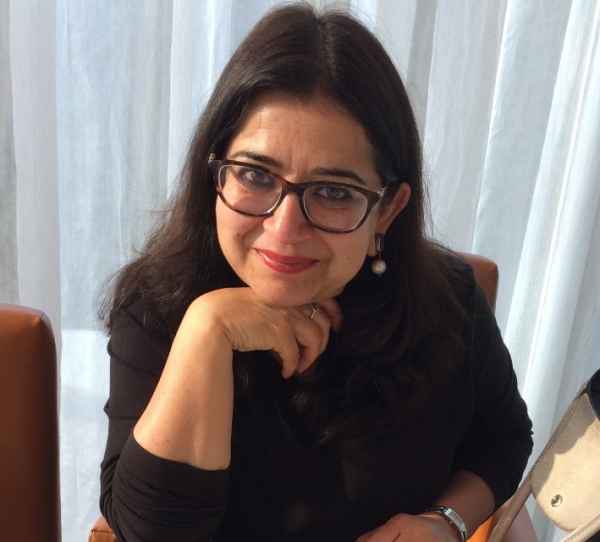
Radhika is a cultural insight specialist, and a behaviour change consultant. She has over 20 years of experience of qualitative research with black and minority ethnic communities. Radhika is a subject matter expert in the area of ‘culture and its impact on health and health seeking behaviours’. She has worked on a number of projects for the Department of Health and NHS designed to gain consumer insight and develop behaviour change communications on public health issues such as cancer, diabetes, and dementia, especially for Black and Minority ethnic communities. | |
| 10:00 to 12:00 | City Tours with Invisible Cities |
Invisible (Edinburgh) is operated by Invisible Cities, a global social enterprise that trains people who have experienced homelessness to become walking tour guides of their own city. Follow one of their walking tour guide along the streets of THEIR Edinburgh. A volunteer will take you from the conference venue to the start of the tour and you will discover: the story of Maggie Dickson and the last public execution place in Edinburgh - the story of local hero Bobby Greyfriars, but also local stories of projects that support the most vulnerable members of our society. The tour will end near the Scottish Parliament which you can explore in your own time or visit the many local cafés and bars in the area. Tours can be booked at the conference registration desk at £25 per person. Max tour size 12 people. | |
| 12:00 to 14:00 | City Tours with Invisible Cities |
Invisible (Edinburgh) is operated by Invisible Cities, a global social enterprise that trains people who have experienced homelessness to become walking tour guides of their own city. Follow one of their walking tour guide along the streets of THEIR Edinburgh. A volunteer will take you from the conference venue to the start of the tour and you will discover: the story of Maggie Dickson and the last public execution place in Edinburgh - the story of local hero Bobby Greyfriars, but also local stories of projects that support the most vulnerable members of our society. The tour will end near the Scottish Parliament which you can explore in your own time or visit the many local cafés and bars in the area. Tours can be booked at the conference registration desk at £25 per person. Max tour size 12 people. | |
| 13:00 to 17:00 |
WORKSHOP - Defining Your Audience's Pathway to Behavior Change Speakers: Jeff Jordan |
Defining Your Audience's Pathway to Behavior ChangeSession Facilitators: Jeff Jordan Location: Melville Session content overview: This workshop will provide an overview of how health communications and social marketing can contribute to health behavior change by exploring the behavior change pathways of knowledge, ability, and norms. Following the framework, the session will explore the components of effective behavior change initiatives, including segmentation and targeting, as well as case studies showcasing how each pathway has been successfully implemented within a specific community and through a specific program. Evaluation best practices will be shared and tips for setting up a social marketing program for success from the time a behavioral challenge is identified and a strategic pathway is selected, through campaign development, implementation and evaluation. By the end of this workshop, participants will have a strong foundation of behavior change science to guide their programs at home. Workshop participants will leave with the outline of an action plan that is tailored to their specific area of focus. This workshop provides an opportunity to reflect on learnings from the conference and to incorporate new knowledge into your social marketing intervention. Half day workshop: GBP 120.00 
Jeff is President and Executive Creative Director of Rescue Social Change Group, a behaviour change marketing company. His passion for social change began in high school when he volunteered for an anti-tobacco group. Observing the lack of effective social marketing services, he started Rescue Social Change Group when he was 17 years old. While growing Rescue SCG, Jeff studied Marketing for his undergraduate degree and received a Master’s in Experimental Psychology from the University of California, San Diego. Today, Jeff has led Rescue SCG’s growth to five offices in the US and managing over two dozen behaviour change programs across North America, tackling issues such as tobacco, obesity and violence. | |
| 14:00 to 16:00 | City Tours with Invisible Cities |
Invisible (Edinburgh) is operated by Invisible Cities, a global social enterprise that trains people who have experienced homelessness to become walking tour guides of their own city. Follow one of their walking tour guide along the streets of THEIR Edinburgh. A volunteer will take you from the conference venue to the start of the tour and you will discover: the story of Maggie Dickson and the last public execution place in Edinburgh - the story of local hero Bobby Greyfriars, but also local stories of projects that support the most vulnerable members of our society. The tour will end near the Scottish Parliament which you can explore in your own time or visit the many local cafés and bars in the area. Tours can be booked at the conference registration desk at £25 per person. Max tour size 12 people. | |


